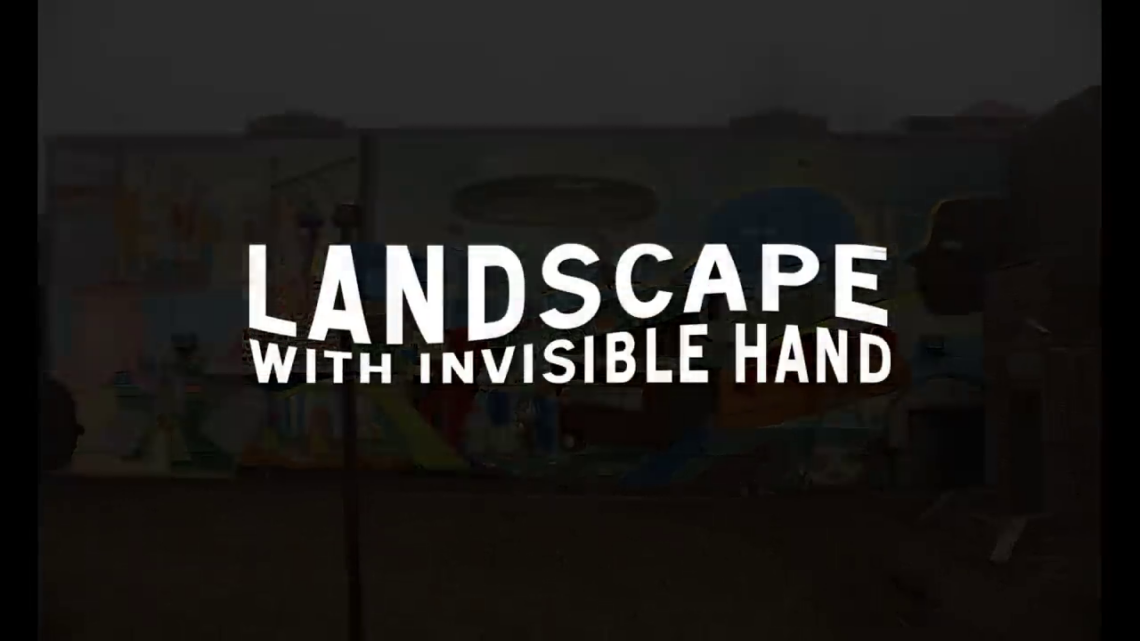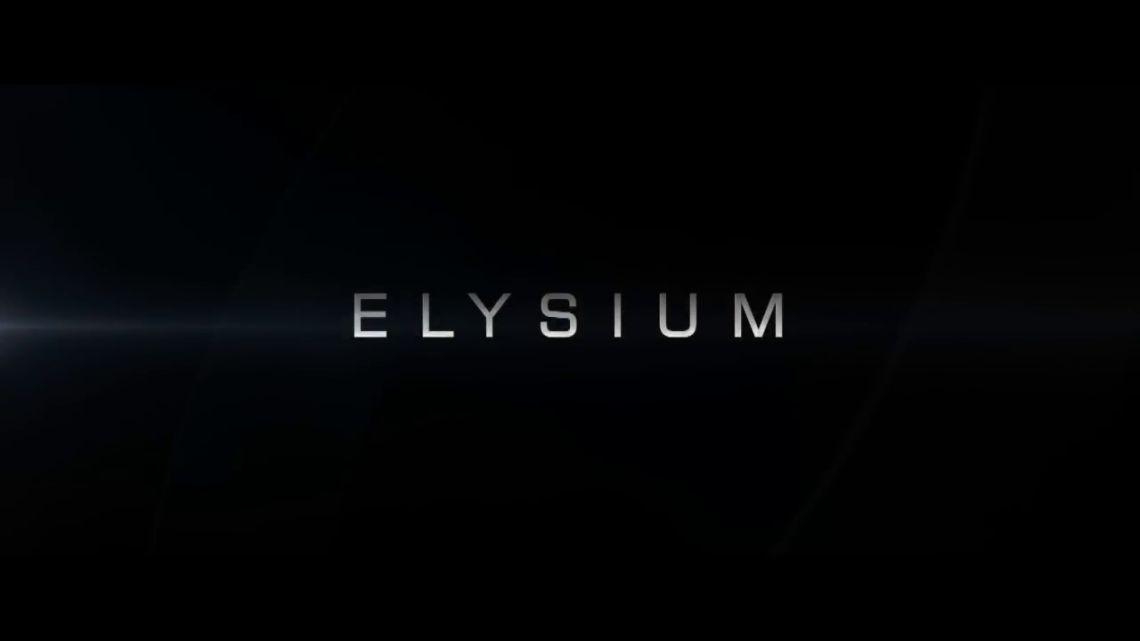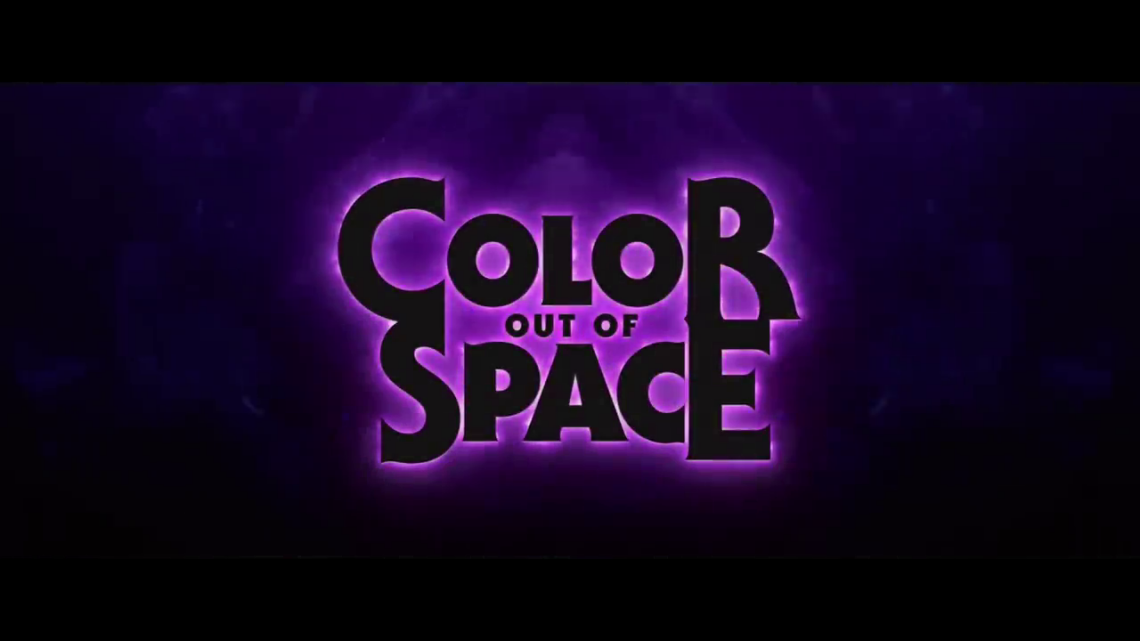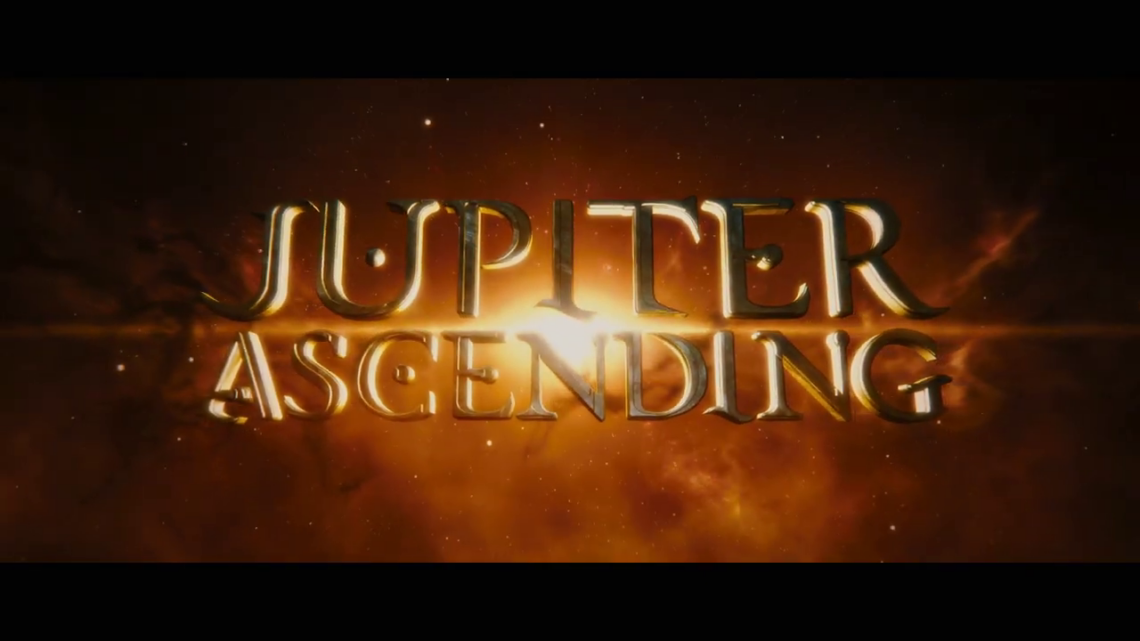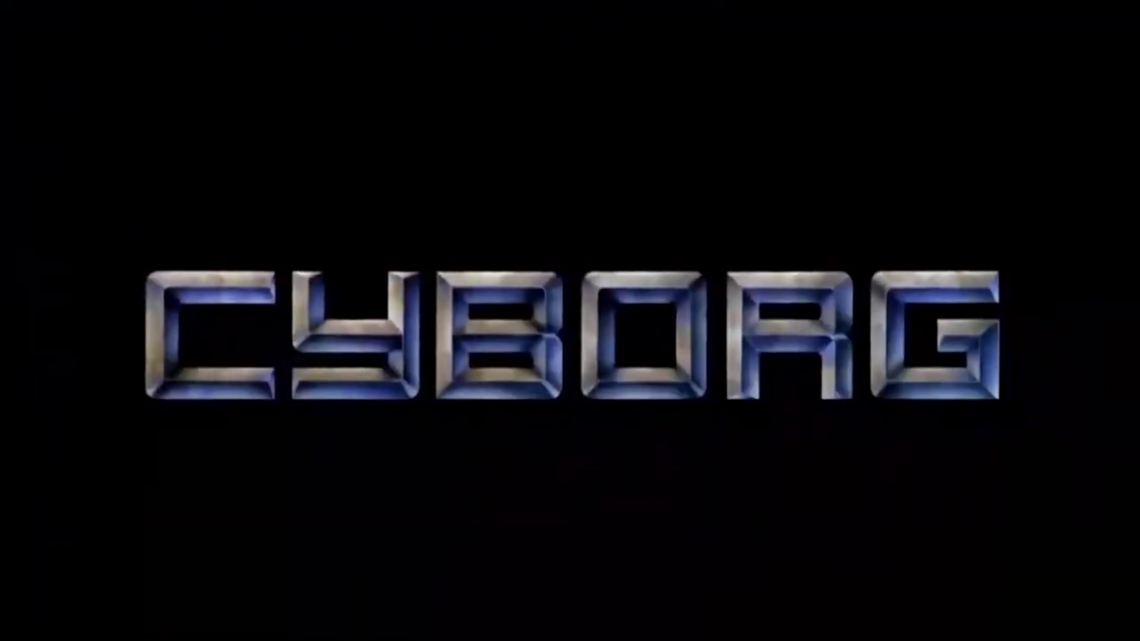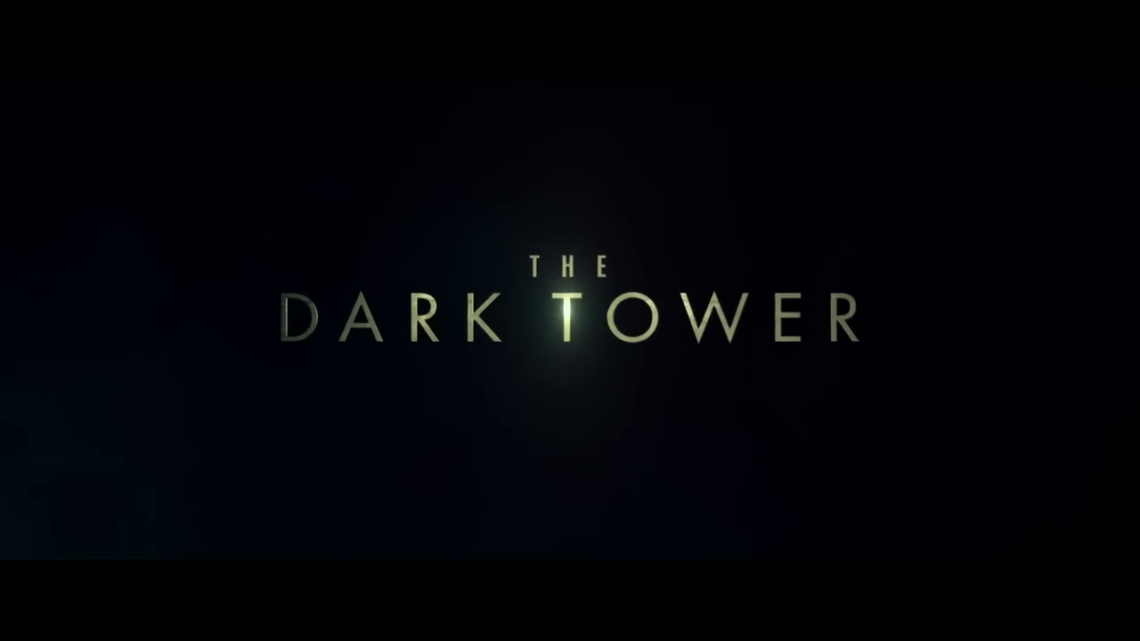-
#656 – Alienated (2021)
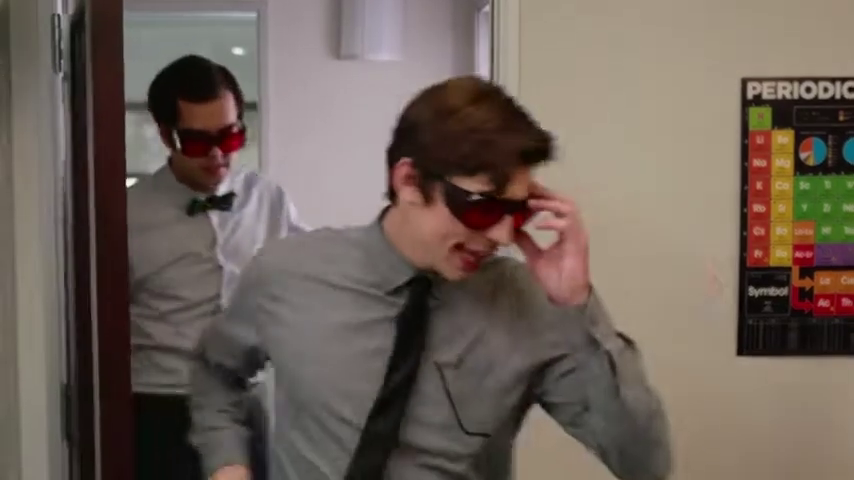


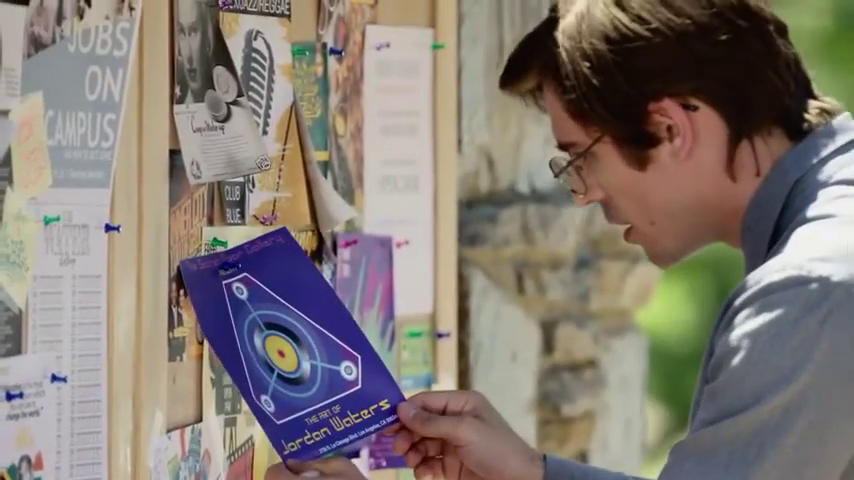

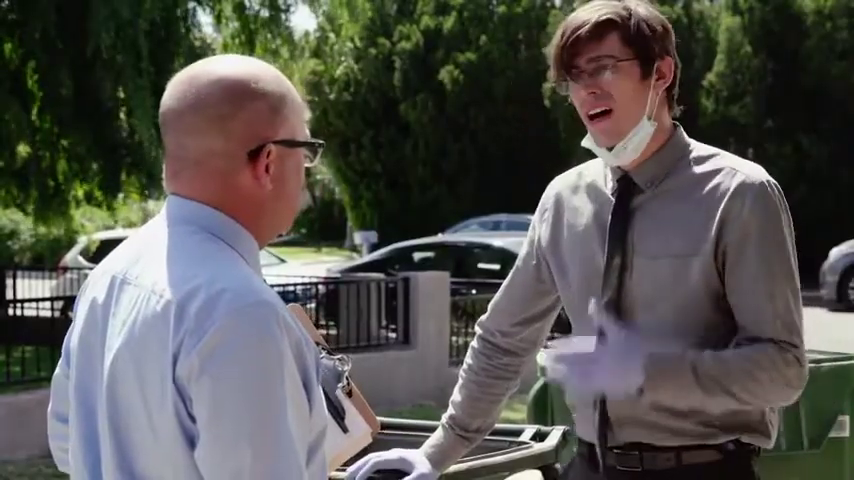

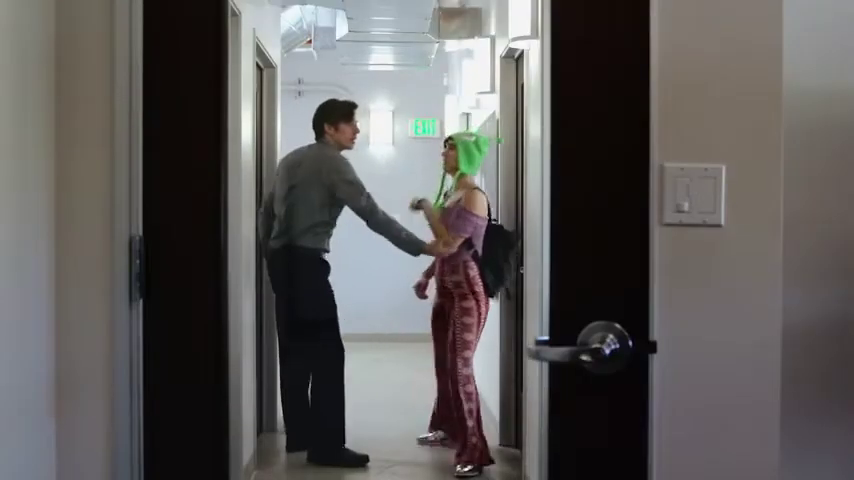
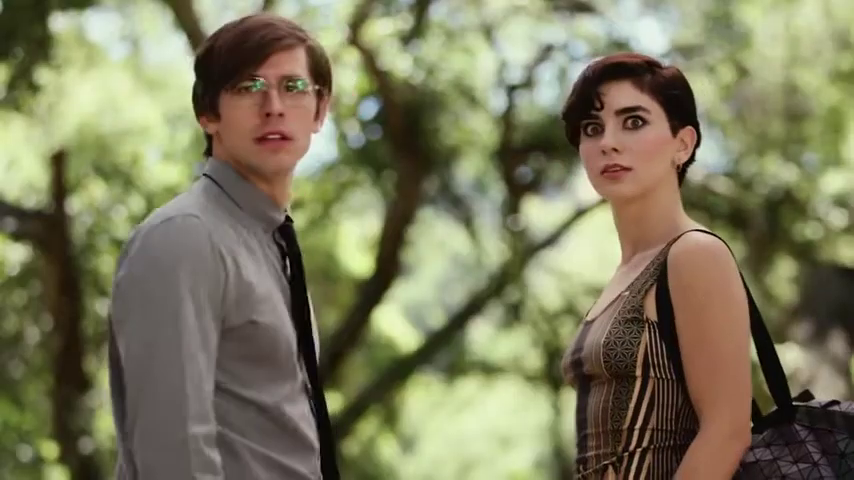
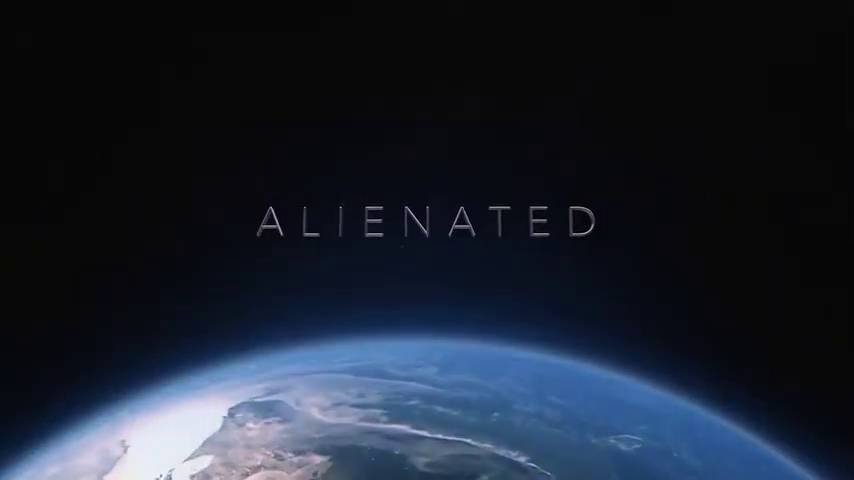
Alienated (2021)
Film review #656
Director: Darryl Anka
SYNOPSIS: A scientist who is struggling with his latest experiment with quantum teleportation has a chance encounter with a UFO. When he sees a flyer for an artist’s exhibit featuring an image that looks suspiciously like the UFO he saw, he goes to the exhibition to meet her. Unbeknownst to him, however, the artist is actually an alien who came down from the ship…
THOUGHTS/ANALYSIS: Alienated is a 2021 sci-fi romance film. David Bennett is a physicist who hit a dead-end with his latest experiment on quantum teleportation, and also dealing with his dad’s hoarding, which threatens his eviction. When out for a walk, he sees a UFO in the sky. Later, he comes across a flyer for an artist’s exhibition which features the shape of the UFO he saw. At the exhibit, he finds the artist, a quirky young woman named Jordan Waters. The setup is embarrassingly simple: A scientist who only believes in rationality and objective truth, and a quirky artist who values creativity and expression. Combined, they make the very typical odd couple in this sci-fi romance. I suppose the twist is that Jordan is actually an alien from the UFO that David saw, but I don’t think her being an alien really influences the story that much anyway: she seems perfectly adapted to Earth, and is not really a fish-out-of-water character, only having a few forced moments of her being ignorant about earth’s customs, which feel like they’re forced upon her character through the script than a reflection on her character. She is also pursued by Ray Watts, a conspiracy theorist who believes aliens walk among us, and sees the UFO too. This sub-plot doesn’t really connect to or alter the central romance plot in any way, it’s just to add in a little bit of threat I suppose. The film really limps along with no real development between the characters, or overcoming obstacles, it’s just a bit dull, and fails to go into any real depths.
A romance film such as this has to hinge on the chemistry between the main characters: this does not have that. As mentioned, the two are polar opposites in the most cliched way ever, offering very little room for individuality or something to organically develop. The acting is really poor, and for some reason every line is delivered in the exact same tone and volume, equalising all of the delivery in such a way there is absolutely no room for expression, quiet or loud moments; it just feels like reciting lines over and over with no personal input. Likewise, there’s no real scenes where David and Jordan’s relationship really develops, or we see them naturally being together; it’s just stilted dialogue all the way through. Grace Lacey as Jordan fills her role reasonably well, but there’s no real opportunity for her to be the free spirit she is supposed to be. David’s relationship with his Father provides another sub-plot that again barely ties to the main story, but does offer at least an emotional moment or two. It should also be noted that David’s Father has the worse fake Irish accent ever, and it is overwhelmingly distracting in every scene he is in.
In terms of everything else, the effects are fairly bland and uninteresting: the sci-fi elements don’t really add anything at all to the plot to make it interesting. Jordan has this power to alter her luck or something, which she uses when she is being pursued by the conspiracy theorist, but again it just doesn’t figure into anything, and it seems weird to establish a reality-altering ability and not have it figure into anything. Everything is also shot really close up a lot of the time, which is probably to hide the small sets, and barely establishes the setting a lot of the time. The close ups would make sense if the characters had an emotional reaction to anything, but they just don’t. Alienated takes a very cliché setup and fails to generate any kind of chemistry or emotional response. The sci-fi element barely figures into the plot, and again adds very little. Jordan is a somewhat likable character, but she’s left with very little to work with in terms of a poor story, weak chemistry, and just an overall undercooked production.
-
#655 – High-Rise (2016)
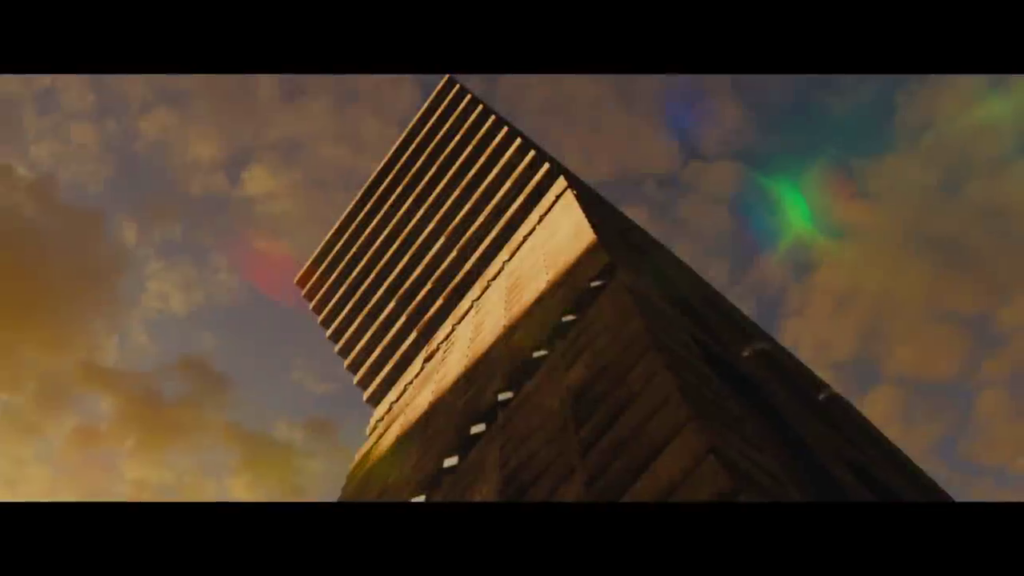
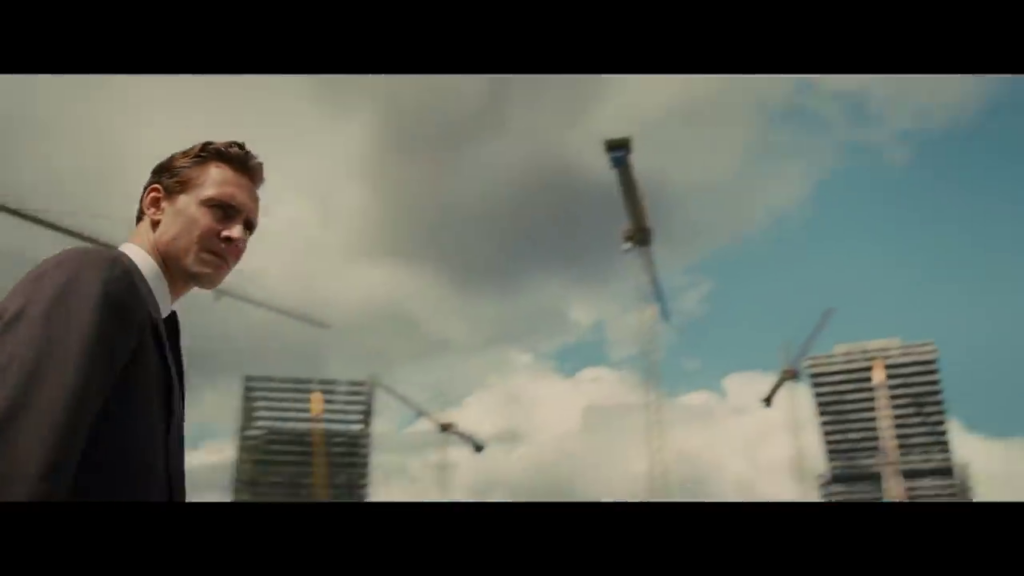
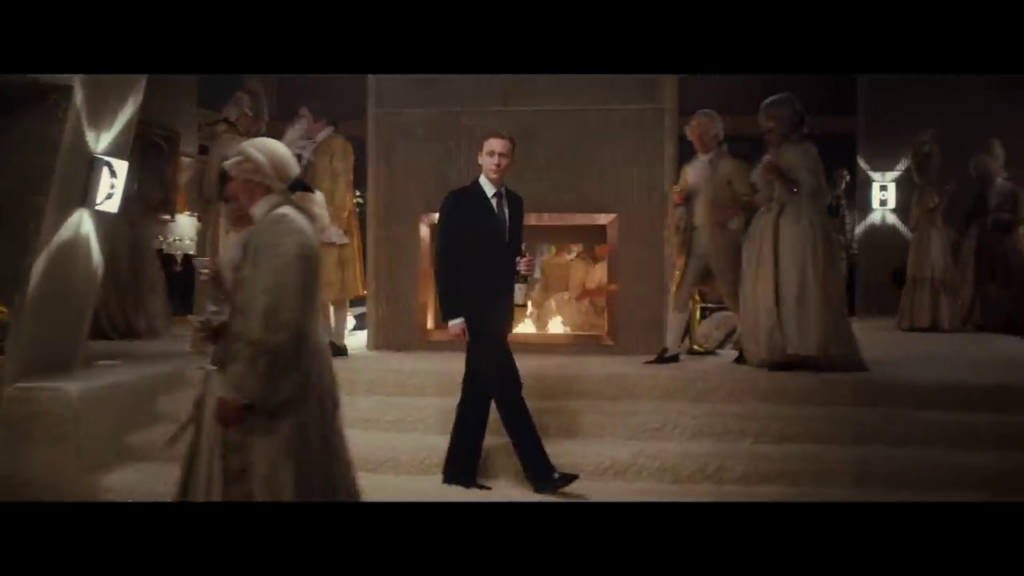
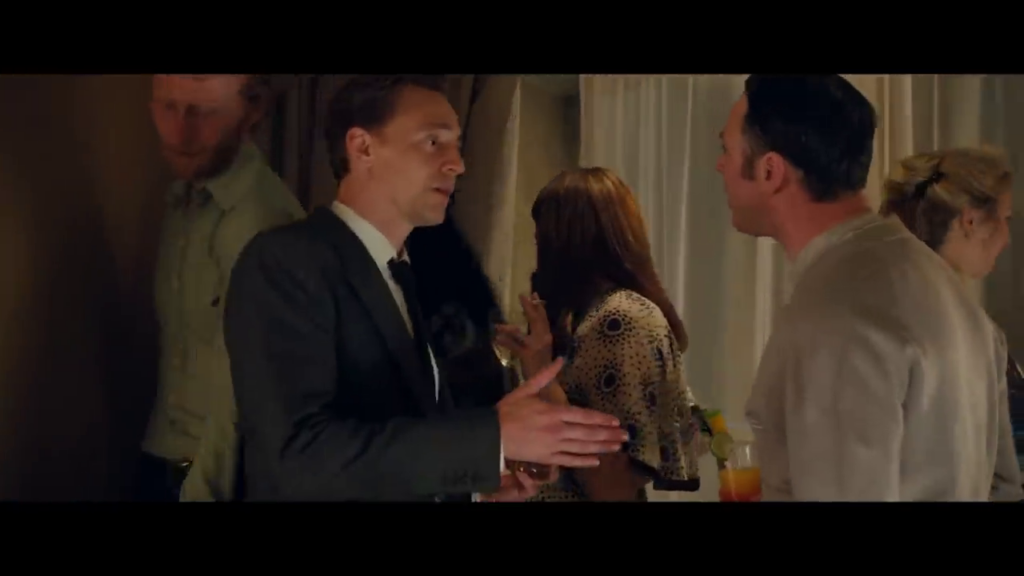
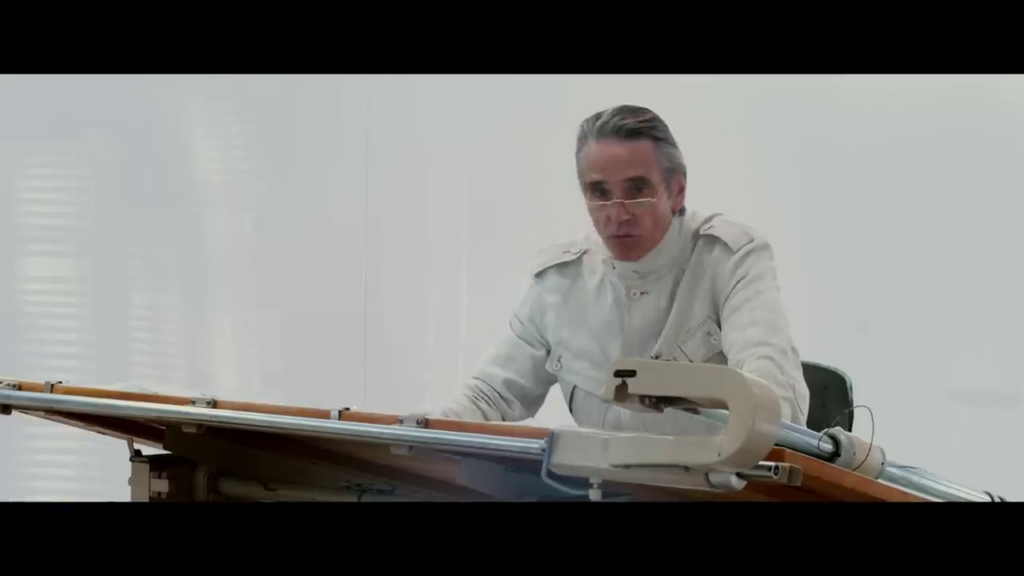
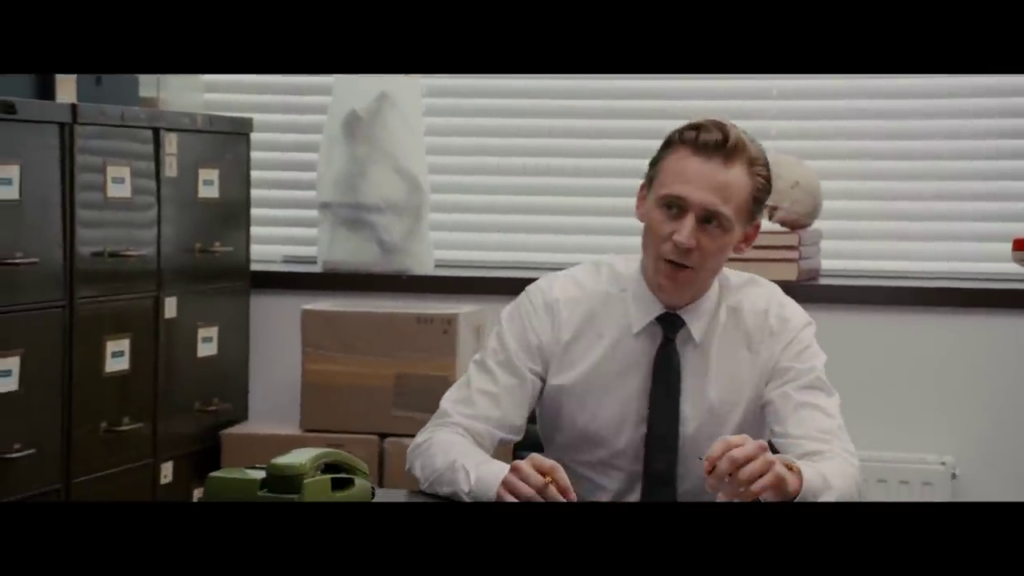
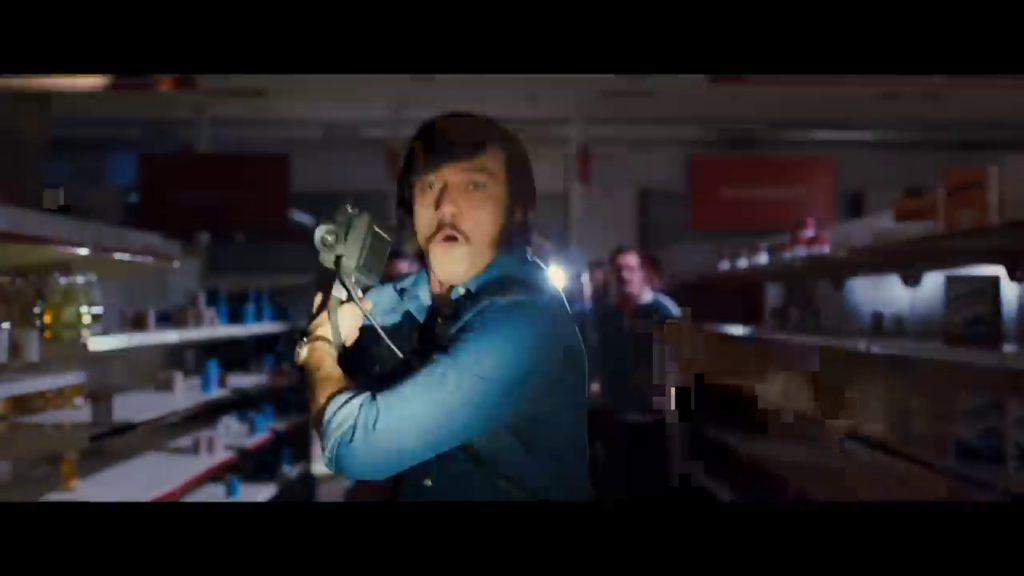

High-Rise (2016)
Film review #655
Director: Ben Wheatley
SYNOPSIS: Dr. Robert Laing moves into a brand new tower block, where the richest residents live at the top, and the poorest below. Seeing a world of decadence and excess, he eventually joins in on the social structure created by the building, but the social hierarchy is threatened as order breaks down…
THOUGHTS/ANALYSIS: High-Rise is a 2016 dystopian film based on the 1975 novel of the same name by J.G. Ballard. Set at the time of the original novel, the film focuses on neurologist Dr. Robert Laing as he moves into a state-of-the-art tower block on the outskirts of London, where the upper class residents live on the higher floors, while the poorer residents live below, with all amenities and services provided inside, so that leaving the block is hardly necessary. Wanting to live a quiet life, Robert tries to keep to himself, but eventually finds himself embroiled in the tower’s lavish lifestyle, and when the hierarchical order starts to break down, he must find a way to survive. A lot of this film focuses on style: it goes to great lengths to highlight the decadent lifestyle of the rich that goes on, to the detriment of those living below. There’s barely ten minutes that go by in this film without a new party scene kicking off. The setting is illustrated fairly well, and you get a good sense of the differences between the floors, and the points of contest that everyone has, reflecting society as a whole condensed into this single tower block, which echoes the intent of Ballard’s dystopian novel. While the film certainly captures the feeling of the 1970s of which it is set, with the ubiquitous tower blocks of the time providing the basis of its dystopian critique, it does perhaps lack the bite that Ballard’s original story did of the time with the contemporary setting. However, its contrast between social classes is still sharp enough.
The biggest problem with this film is the plot: while there undoubtedly is one, it is often obscured or unintelligible behind the overwhelming decadence and stimulation on screen, with all the shouting and partying, it’s difficult to get into the nuances concerning the different characters and their relations. The main beats of the lower class rebelling against the upper is fairly evident, but anything beyond that fails to establish itself. It may be argued that part of this is that the breakdown of society, along with the breakdown of the main characters mental state, are illustrated by this incoherence, but you can certainly show that while still making a story that’s simple to follow. As such, it never really grips you at any point, and there’s nothing really at stake for any of the characters, as this revolution never really seems out of necessity; it’s not like these people are trapped in the tower block, they could have left at any time. While the film focuses on its style and aesthetics, it somehow fails to showcase any human response or emotions in any of the characters. Again, you could argue that the absence of humanity in the conditions of the tower is part of the plot, but it fails to offer anything in place of that.
Overall, High-Rise revels in style and decadence to establish an environment in which humanity is lost amidst an all too familiar class struggle. Any sense of narrative or characters is lost amidst the constant party scenes and anarchy, meaning there is very little narrative to progress, and the mish-mash of sex and violence never coheres into anything graspable or meaningful. A mess, but a mess with a bit of flair.
-
#654 – Landscape with Invisible Hand (2023)

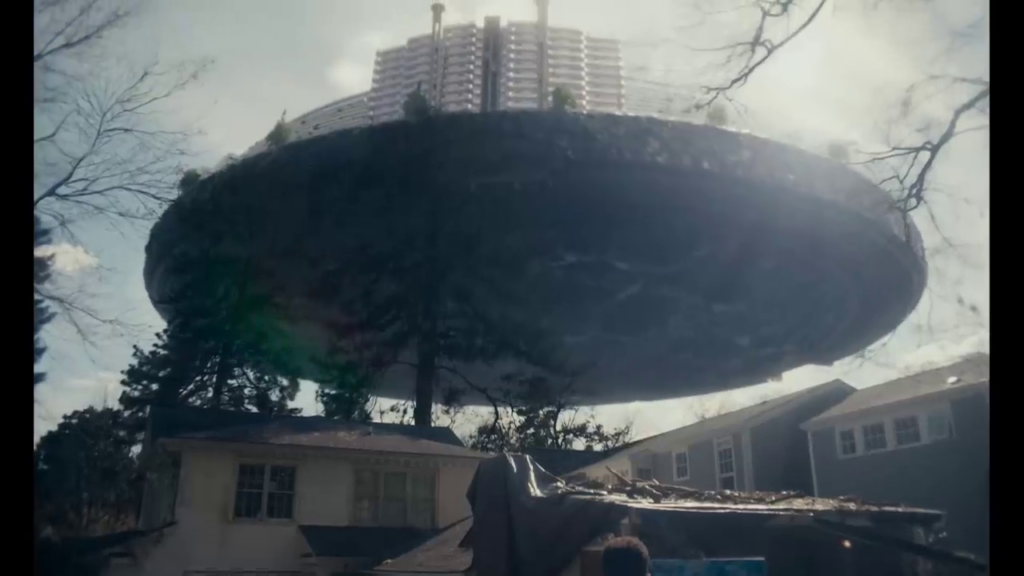

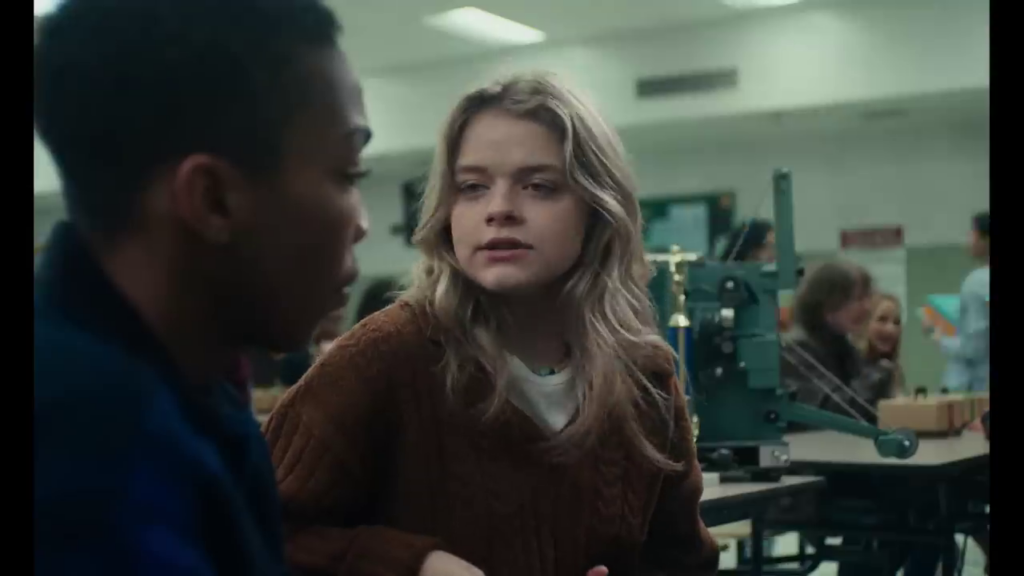
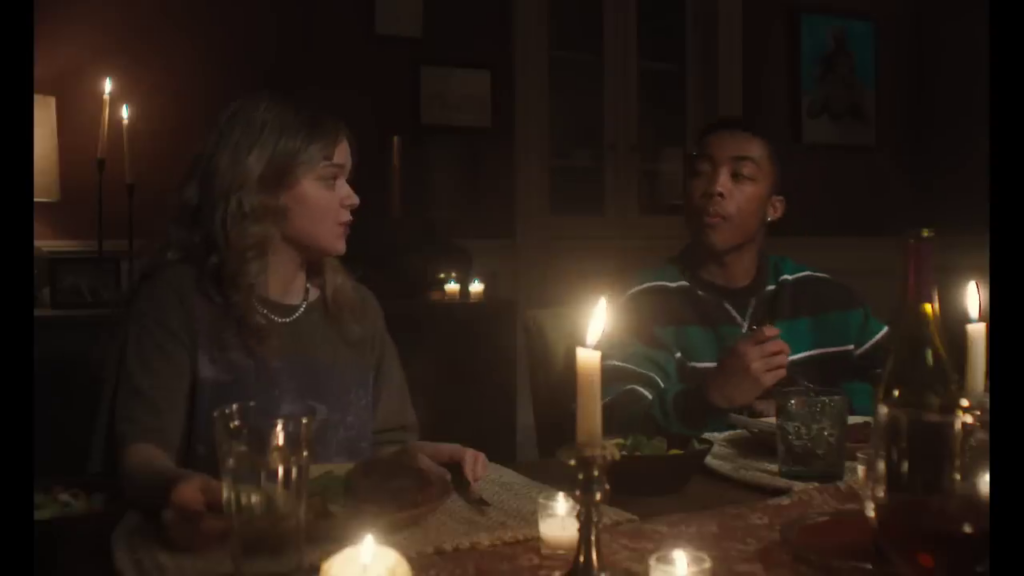
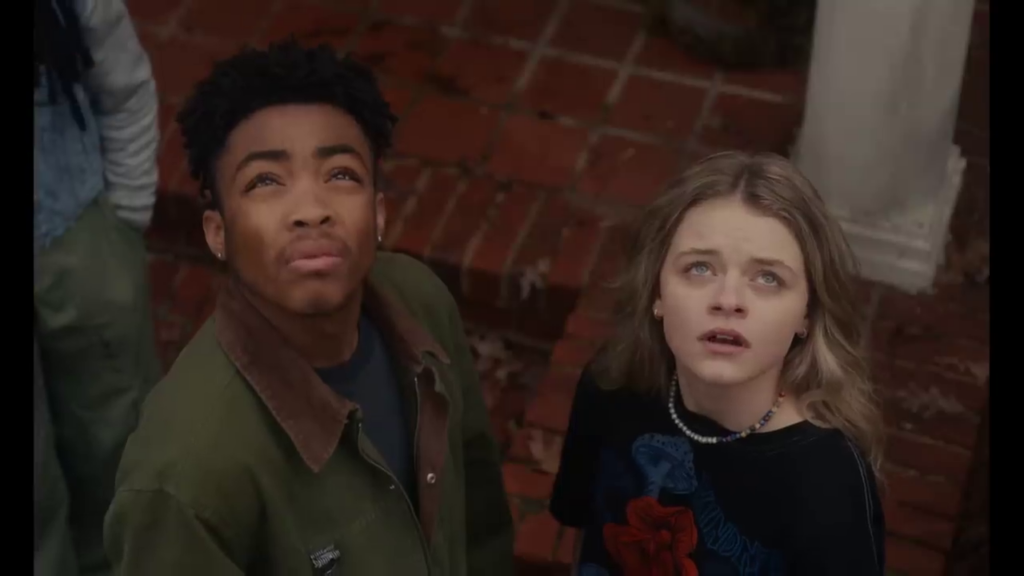
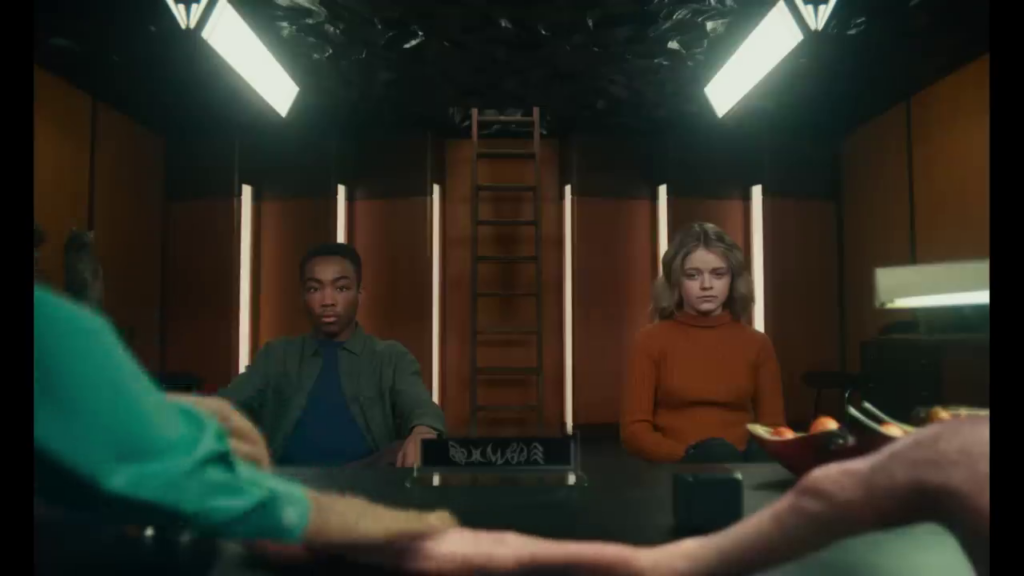
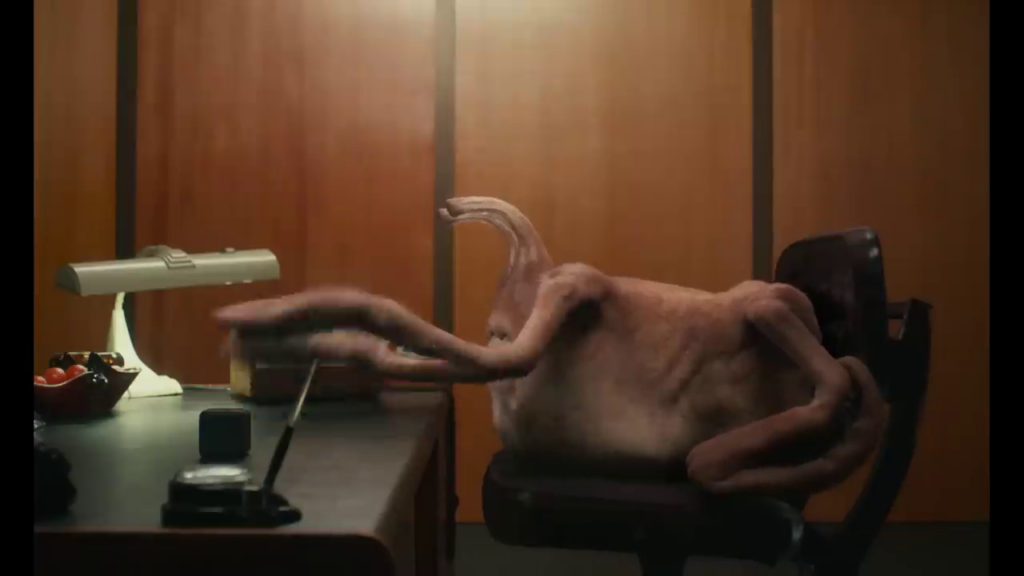
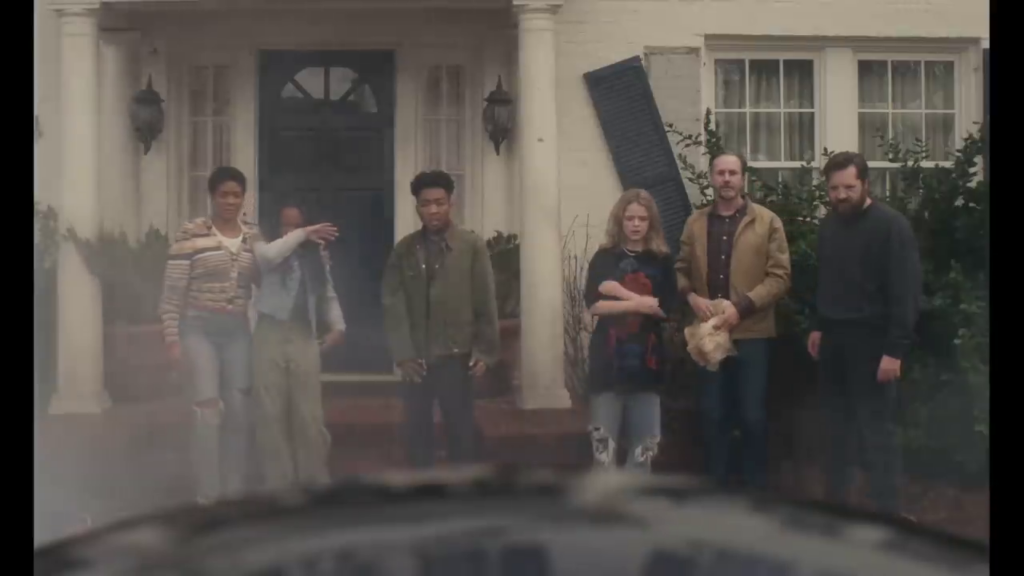
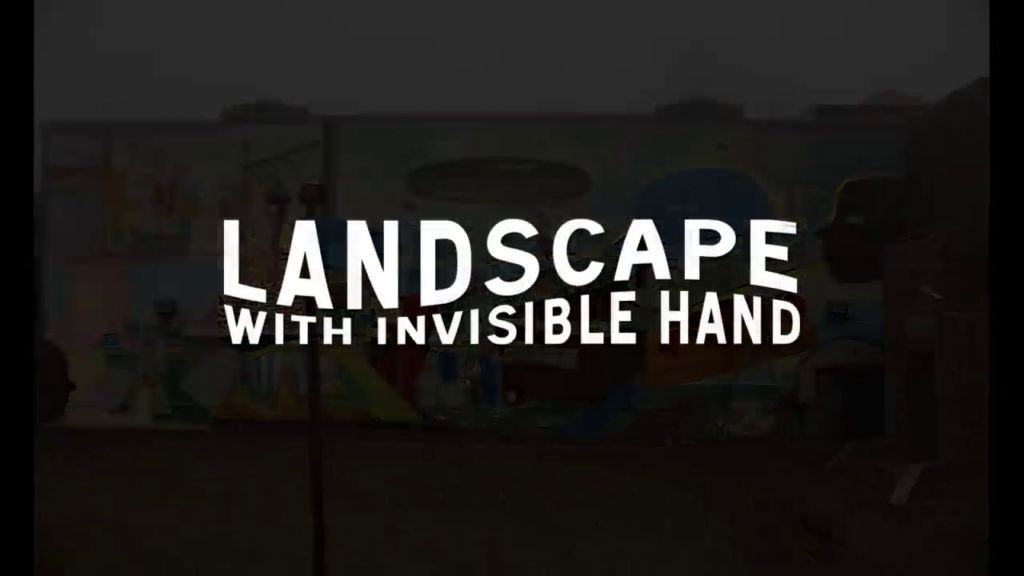
Landscape with Invisible Hand (2023)
Film review #653
Director: Corey Finley
SYNOPSIS: In the year 2036, an alien race called the Vuvv has caused mass unemployment and homelessness across the planet, as their advanced technology has rendered most human jobs obsolete. Adam meets a new girl at his school named Chloe, who has just moved there and is living out of the family’s car since they have no money. As Adam and Chloe start to get close. They decide to make money by broadcasting their relationship to the Vuvv, who have a fascination with human romance. They start to earn money to live as their broadcast becomes popular, but the strain on their relationship starts to affect their broadcast, leading to an uncomfortable confrontation with the Vuvv…
THOUGHTS/ANALYSIS: Landscape with Invisible Hand is a 2023 sci-fi film based on the novel of the same name by M.T. Anderson. Set in the year 2036, when an alien race named the Vuvv have made most human jobs obsolete with their advanced technology, leading to mass unemployment and homelessness. High school couple Adam and Chloe decide to try and make money by live broadcasting their relationship by using headsets that show their point of view, as the aliens have nothing like romance in their culture, and see it as a bit of a novelty. As time goes on however, the pressure of their personal lives being on show puts a strain on the pairs relationship. This premise of the film is a fairly solid one, is simple to grasp, and opens up its world to a satirical look at the human cost to a ‘peaceful’ alien invasion. You can easily fill a film with this plot and explore its implications, which the film does…but it doesn’t stop there sadly. This plot essentially takes up the first third of the film, but evolves into something else entirely, as the film takes a three-act structure and almost completely changes the focus of the plot: when Adam and Chloe’s relationship suffers because of having to broadcast everything, they are sued for ‘faking’ their relationship; leading to a compromise where a Vuvv moves in with them to try and experience ‘real’ family life that they have seen in Tv shows. Then after that, we get Adam’s arc as an artist come to the forefront, as the Vuvv want to exhibit and reproduce his art, again without any idea of what actually means in human culture. These ideas are good enough, but together in the same film, they form a mish-mash of ideas and themes that start and stop, without either the depth required to fully explore them, or a resolution before the film moves onto the next thing. Nothing really adds up; it’s just an exploration of the world and its themes that fails to progress towards anything. This culminates in the film just ending with nothing having been accomplished: nobody really learns anything, the world hasn’t changed for better or worse, it just…goes on, I suppose.
As mentioned, the film takes a satirical tone, poking fun at typical sci-fi concepts and how banal this alien conquest has been brought about not by conquest or military might, but by businesses and capitalism seeing an opportunity to make profit. The banality of this conquest seeps down into every facet of the film, with the characters muddling along with their daily lives, just with giant alien ships floating above them occasionally. It keeps a lighthearted and quirky tone throughout, but still has powerful moments that emphasise the situation humanity is now living under. For example, the opening scene concludes with Adam and Chloe’s teacher shooting and killing himself because his job has been taken over by Vuvv technology. Moments like this are powerful, but are quickly forgotten about as the film bounces along and whips up another mix of ideas and perspectives to try and congeal them into a structured critique.
The characters are a mixed bunch, but are mostly portrayed well. Nothing in the script really hits a strong emotional high, and as mentioned, it’s kept satirical and quirky, which hinders something a bit deeper developing without a tighter, cohesive story. Landscape with Invisible Hand has an understanding of it’s subject and what it wants to do, but that aim is often lost amidst it trying to do far too much, without brining unfinished ideas and relationships forward as the film progresses. As such, it is a jumble of ideas that occasionally hits the mark, but too often spreads itself too thin.
-
#653 – Elysium (2013)
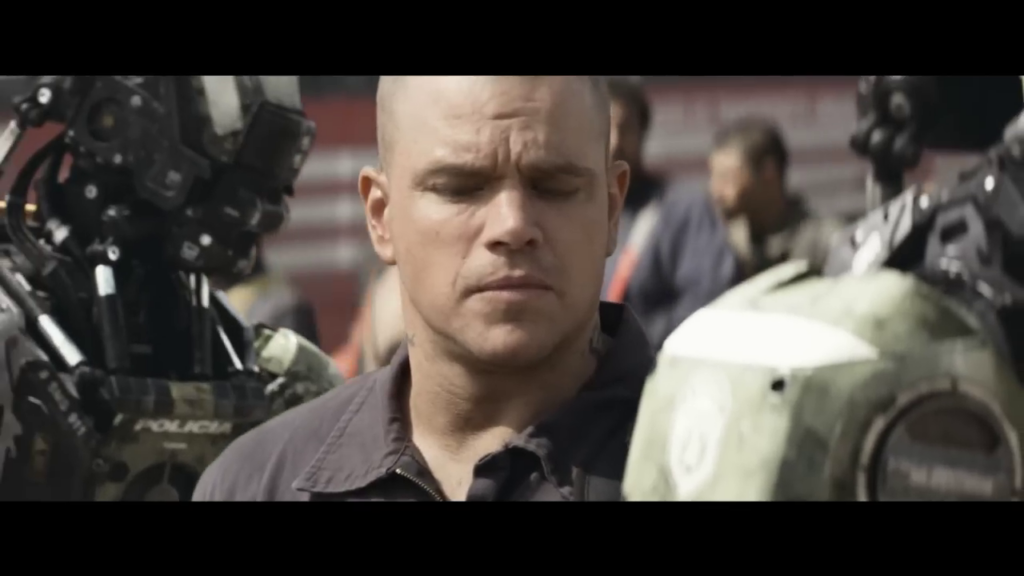
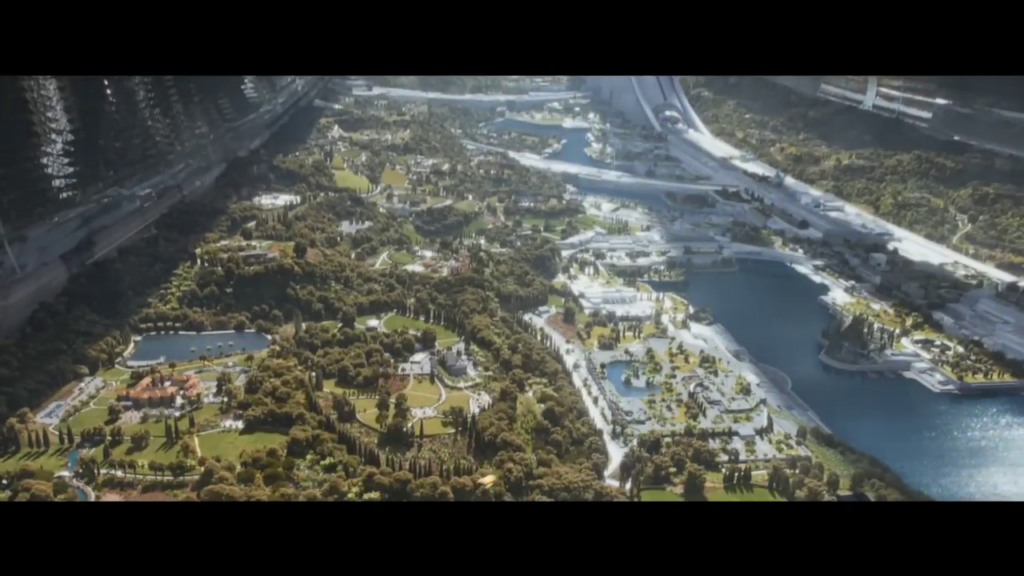
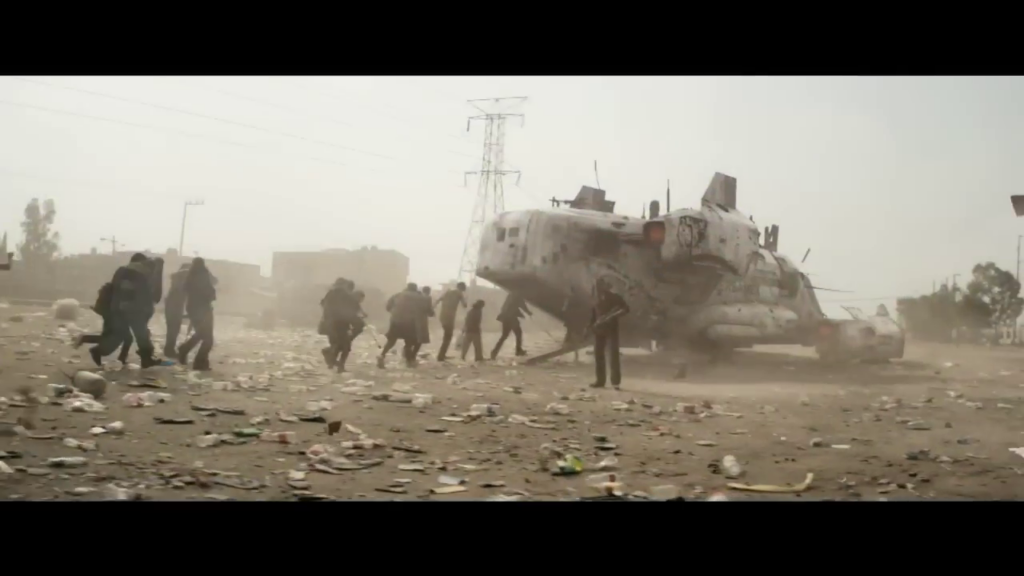
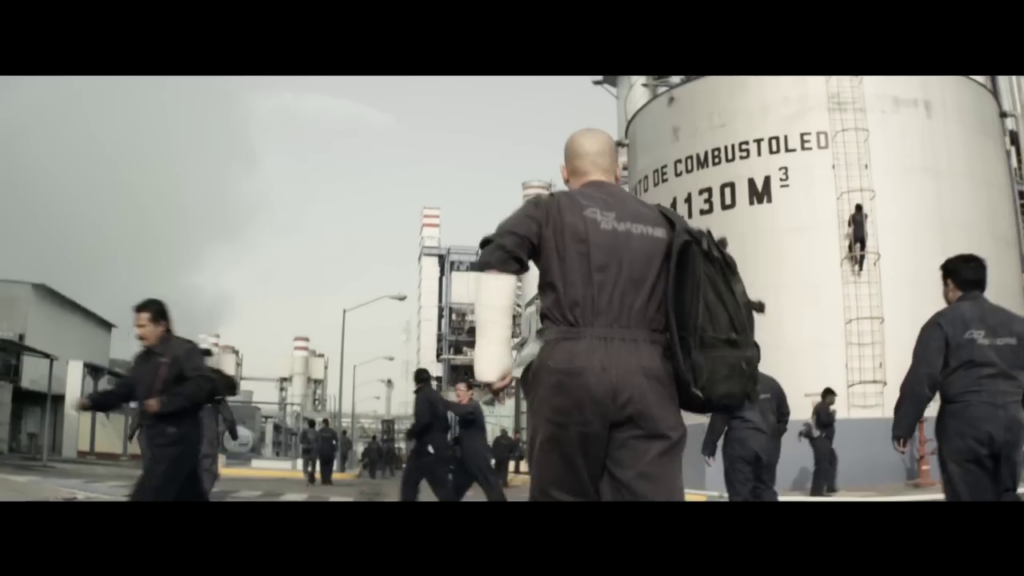
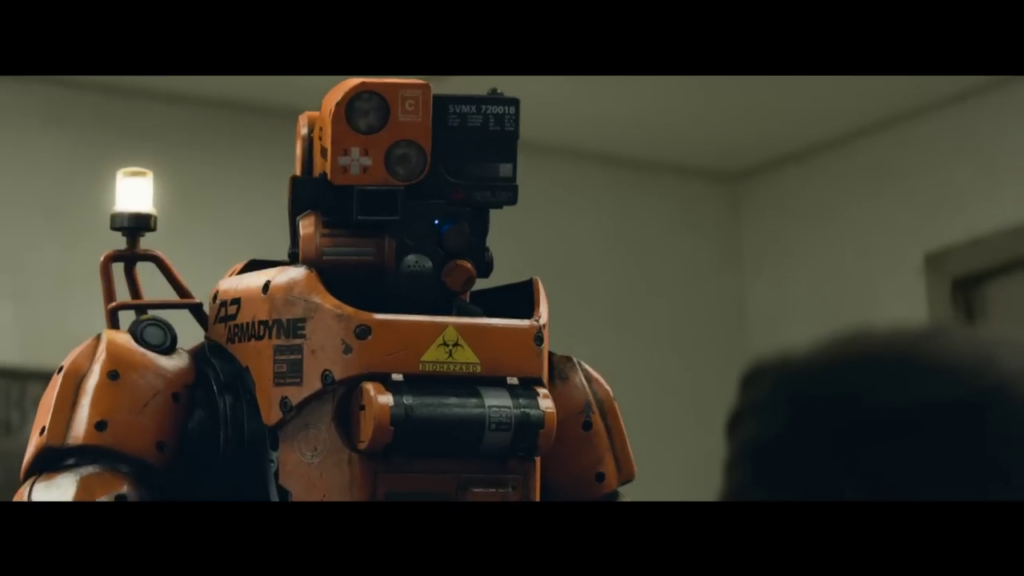
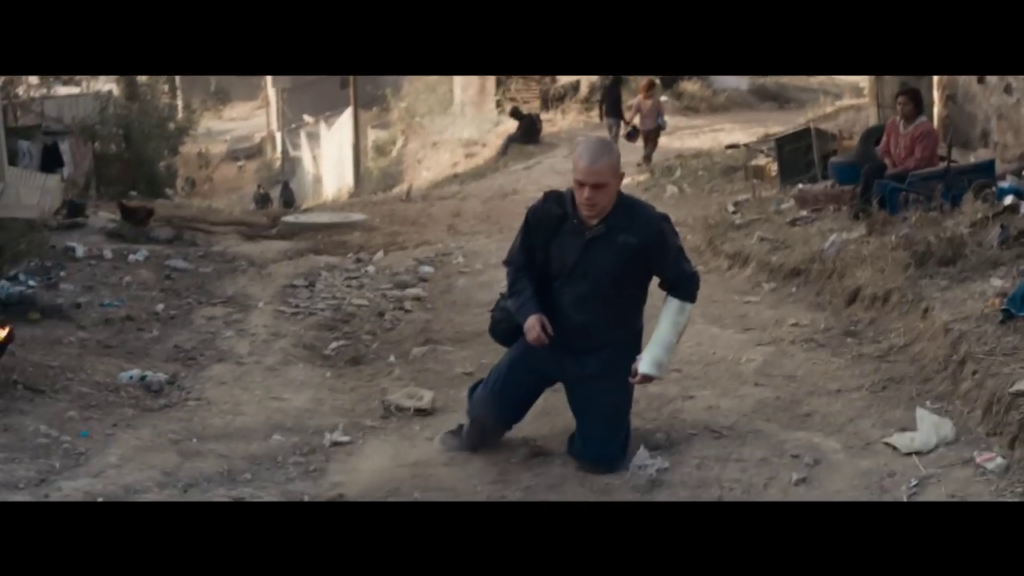
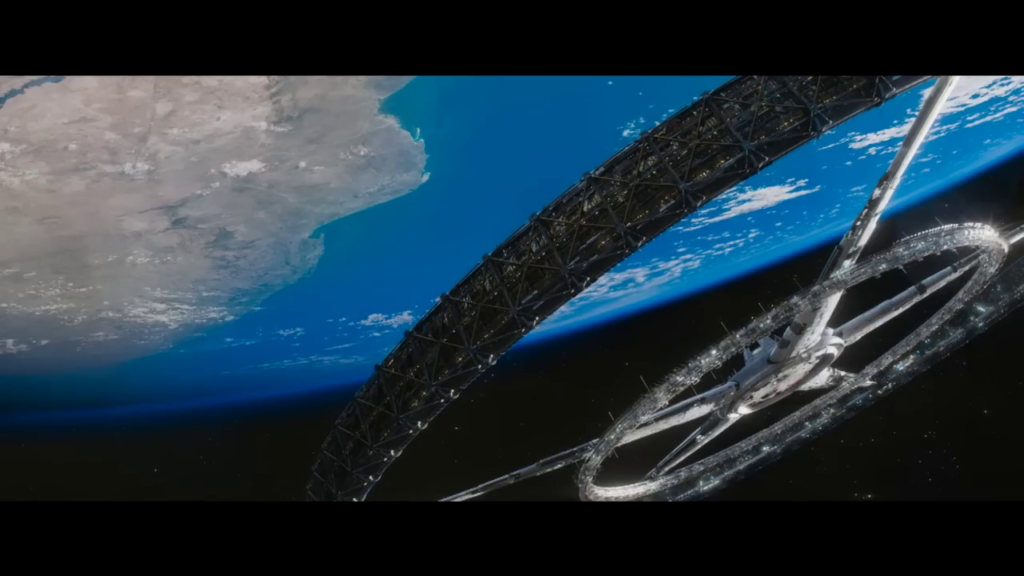
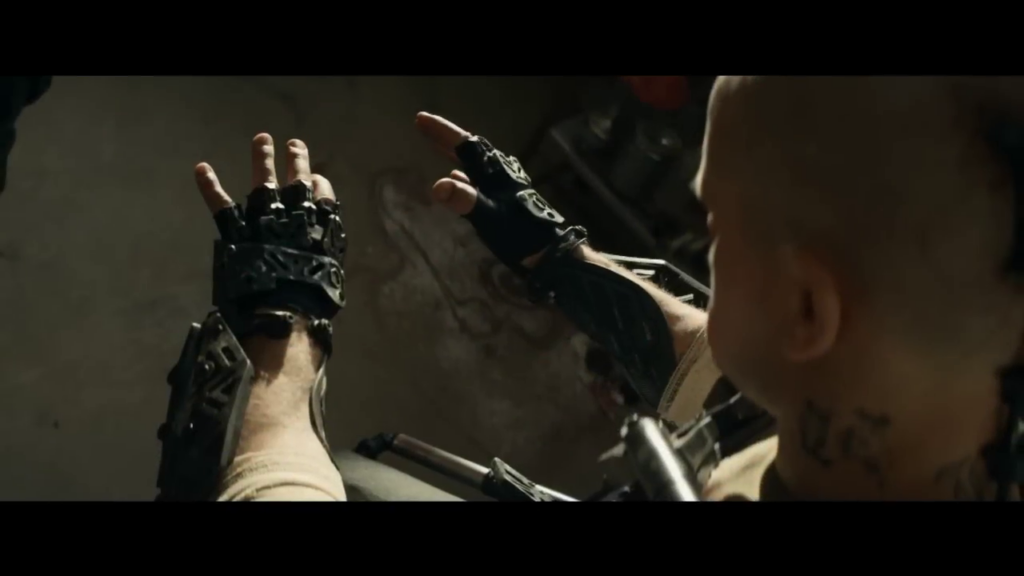
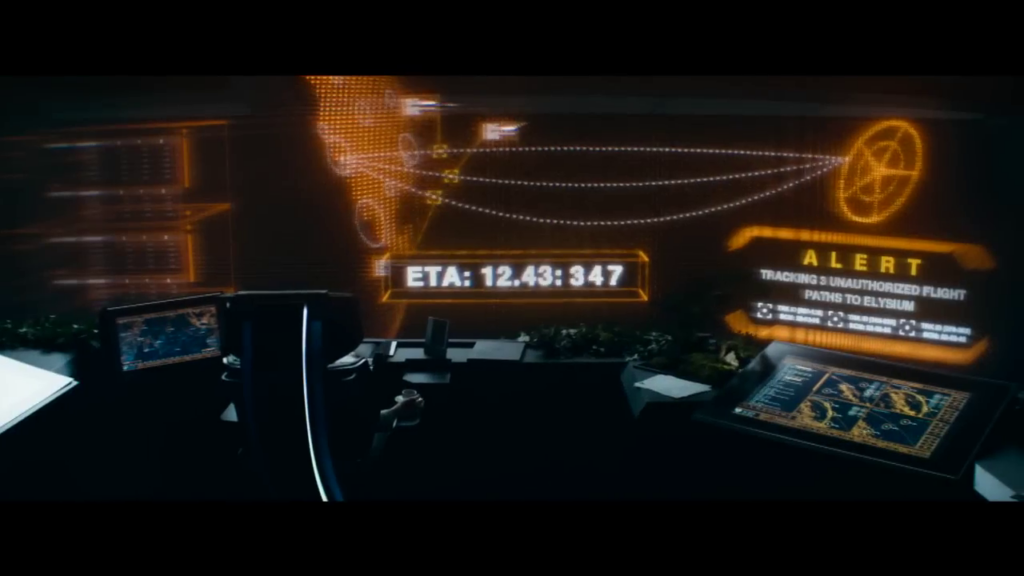
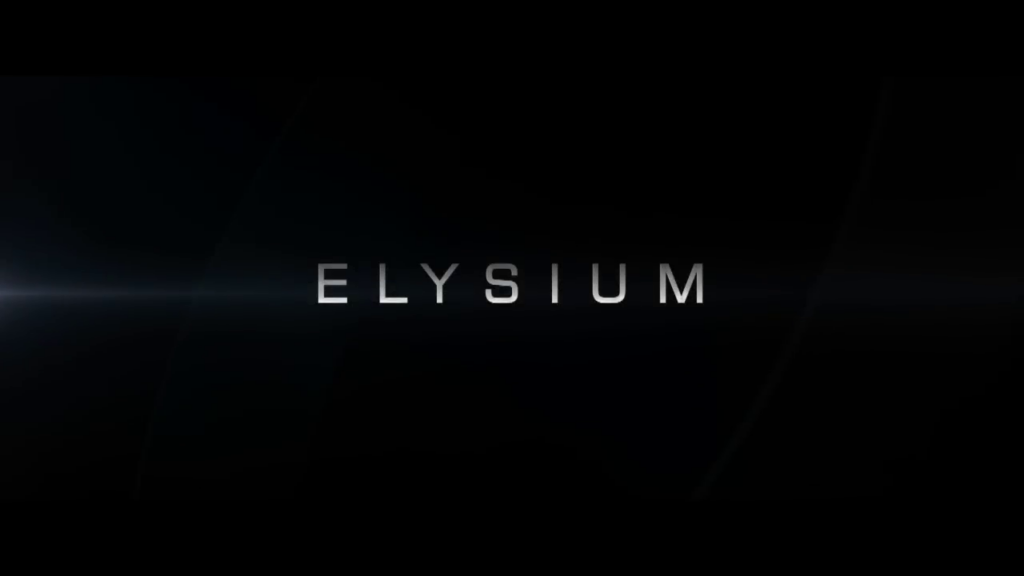
Elysium (2013)
Film review #653
Director: Neil Blomkamp
SYNOPSIS: In a future where the rich and wealthy have escaped an overpopulated and polluted earth to live on a luxurious space station orbiting the planet, Max da Costa is attempting to survive on the surface. When an accident at work leaves him exposed to lethal radiation and only a few days to live, Max decides to team up with an old criminal acquaintance to infiltrate Elysium and access the medical facilities there…
THOUGHTS/ANALYSIS: Elysium is a 2013 sci-fi film. Set in the year 2154, where the earth is overpopulated and polluted, Max Da Costa (Matt Damon) is exposed to lethal radiation at a job, and is given only a few days to live. With the only way to cure himself on board the space station Elysium, where the rich and powerful live in luxury, he teams up with a hacker and an old friend in order to find a way up there and cure himself. The plot of the film is, at its core, very predictable: all of the pieces and characters motives fit together and progress in the exact way you expect. Not entirely a bad thing, as it makes the film flow nicely, but you can’t help but feel there’s something more that could have been done with it. As it is though, it’s all fairly self-contained and entertaining enough, with the film being tied together with some strong action scenes and energetic fights. The concept of a divide between the poor on the planet and the rich in the space station above is a fairly simple one to grasp, and doesn’t need any real explanations to grasp it as the underpinning of the story.
If the film looks or seems familiar in any way, then perhaps you’re remembering the 2009 film District 9. This is not coincidental, as Neil Blomkamp directed both films, and clearly brings a shared vision of a ruined earth for both films. Even one of the villains in Elysium, Kruger, is played by the lead actor from District 9 (Sharlto Copley). The two are different films, but there’s a lot of similarities that inevitably draw comparison. Whereas District 9 dived deep into it’s themes and explore issues of discrimination amidst an alien invasion, Elysium really struggles to get it’s theme of extreme class divide in the same way. Even Blomkamp himself admits he didn’t get it across in the way he intended to. As mentioned, the film’s action and energy is decent, and the plot flows nicely; it’s just that any further depth into it’s themes never really grab the viewer’s attention.
The imagery of a dilapidated earth are rendered well, with plenty of dirt and grime that highlights the conditions on the planet. In contrast, Elysium has a more utopian aesthetic, combined with the more futuristic setting of the rotating space station. Max as a character feels deeply underdeveloped, as his only motive is to get to Elysium to cure himself, and lacks any other thoughts on what is going on around him. It makes sense, sure, that he is only focused on staying alive, but it does leave a hole at the centre of the film that ties the main character to the various machinations around him. Overall, Elysium is a perfectly serviceable action film with a clearly defined story and setting. In terms of bringing the themes behind the story. the film fails to do so in any meaningful way, and draws inevitable comparisons to the director’s former work, which did it much better in District 9. Not a bad film by any means, but clearly doesn’t fulfil the vision laid out for it.
-
#652 – Color Out of Space (2019)
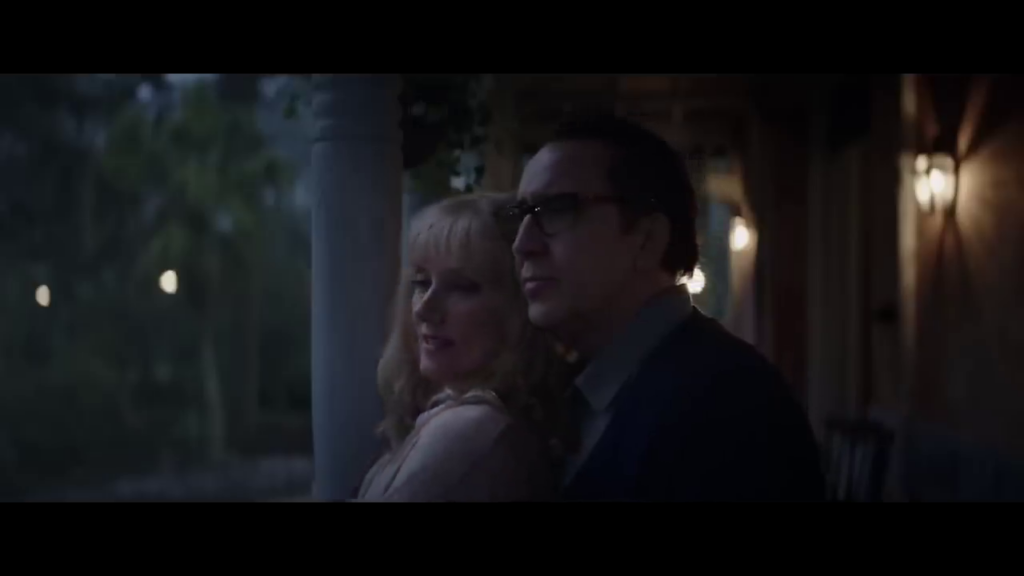
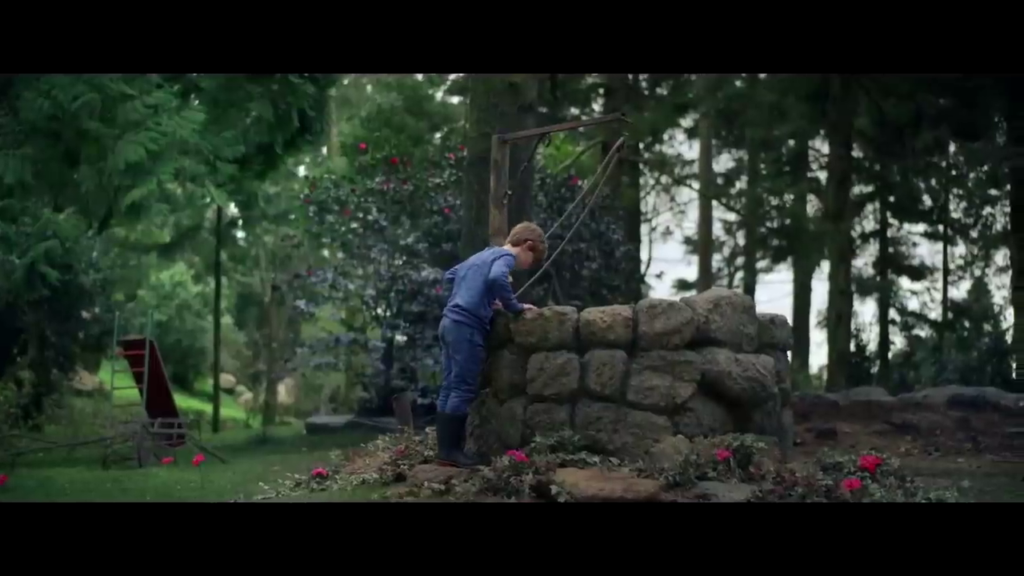
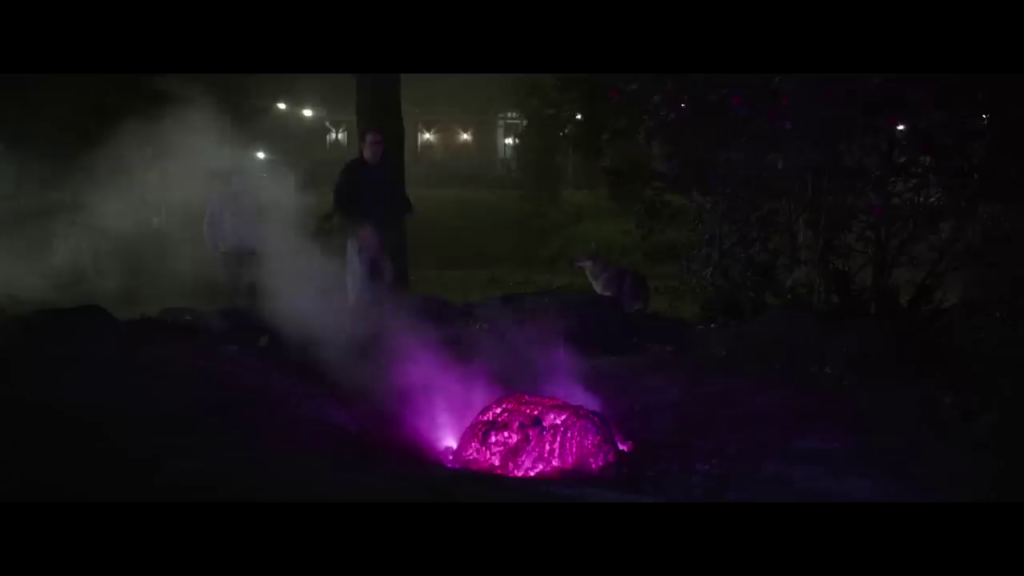
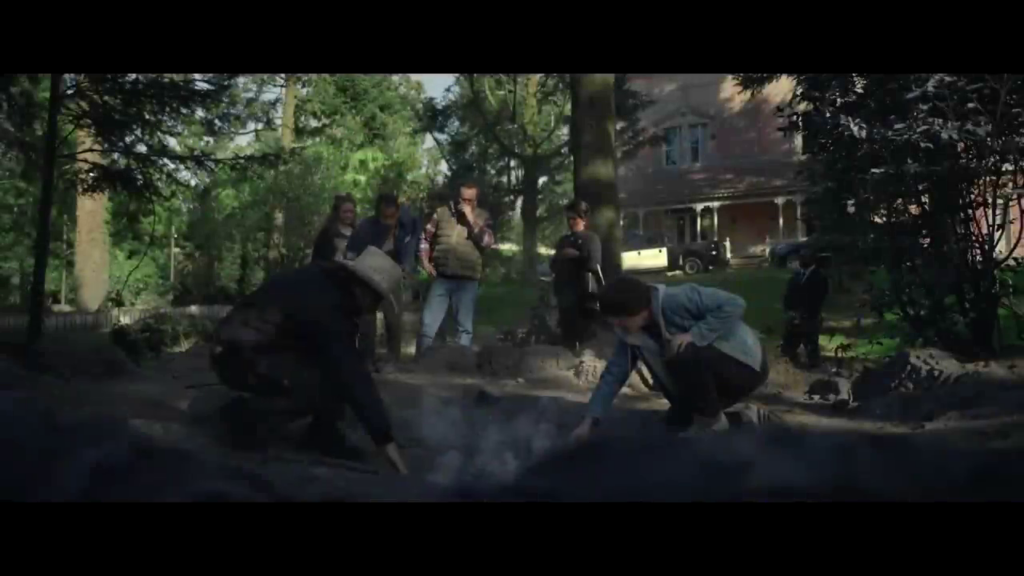
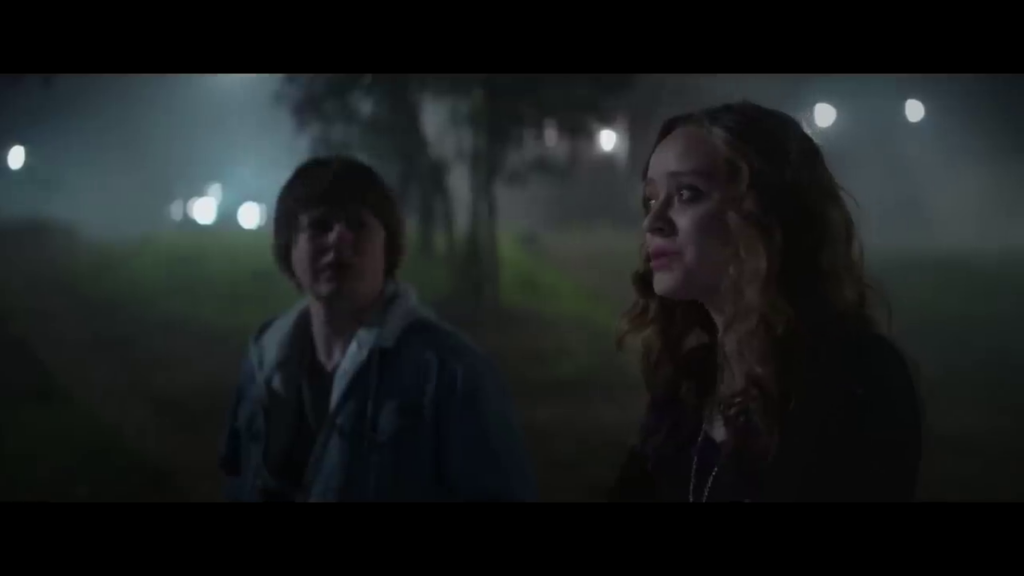
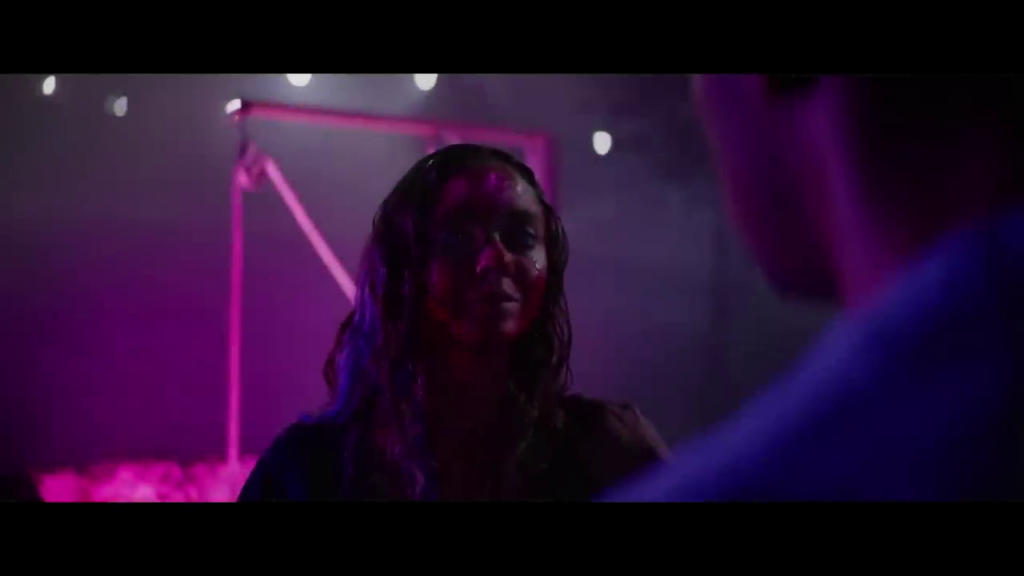
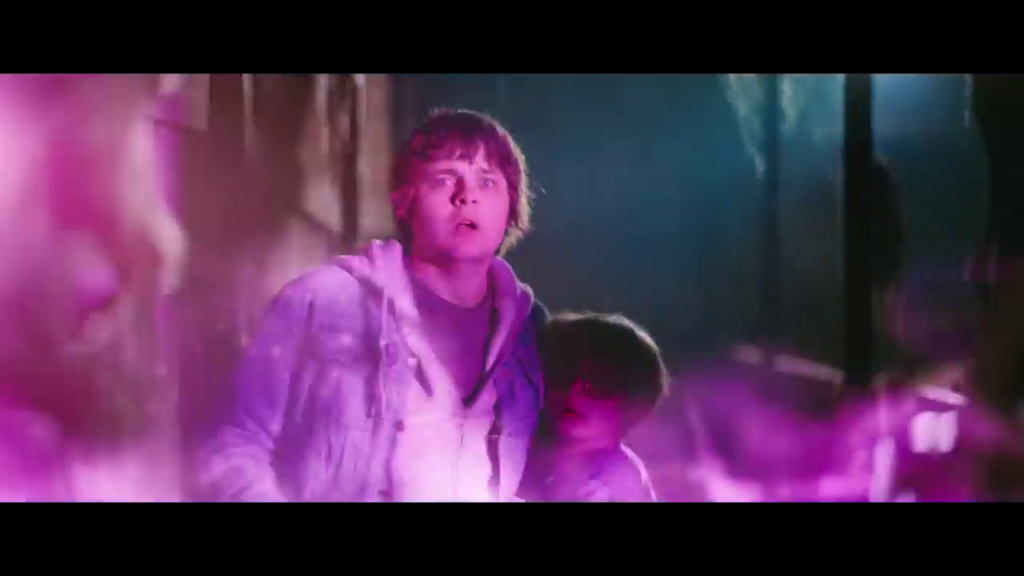
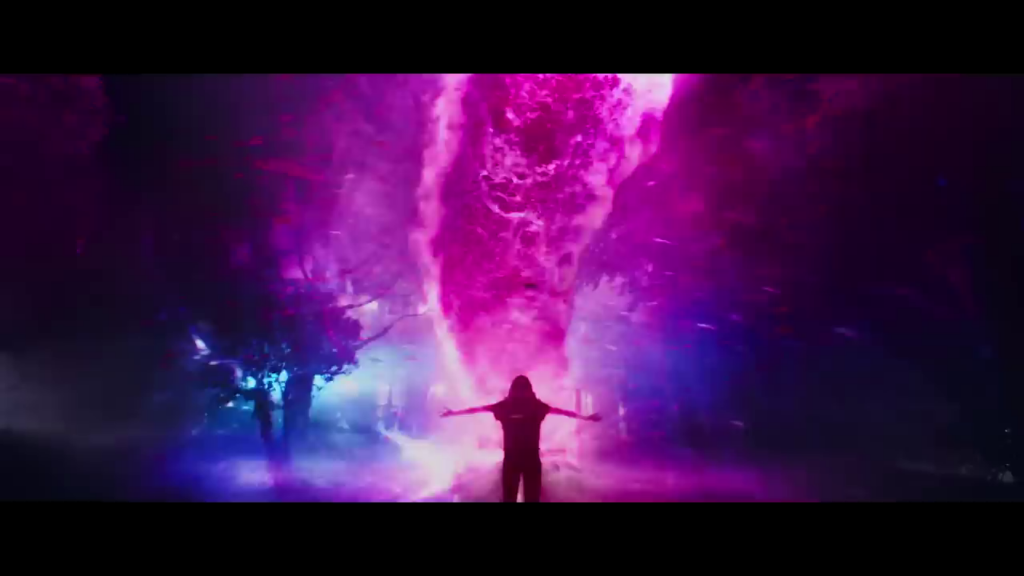
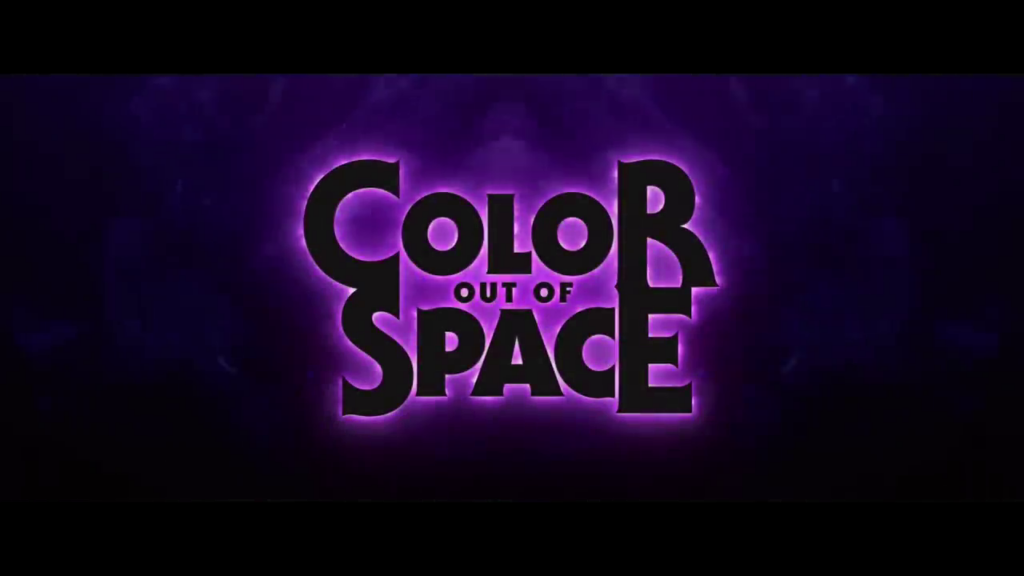
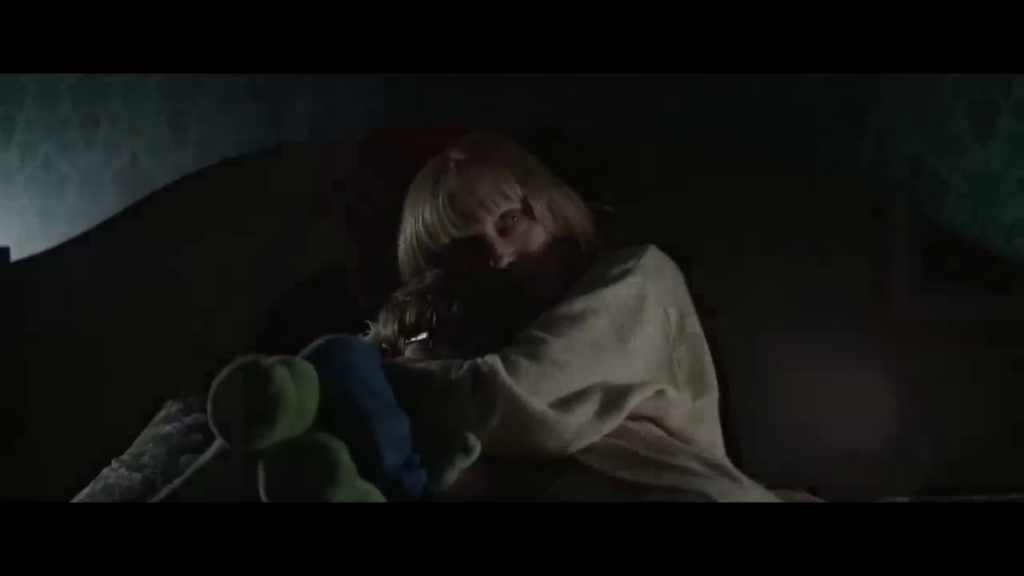
Color Out of Space (2019)
Film review #652
Director: Richard Stanley
SYNOPSIS: Nathan Gardner moves his family to a remote farm after his Wife’s cancer surgery. One night, a strange meteorite crashes near their home, exhibiting a strange colour. Over the coming days, the family begin to experience strange events that leave them bemused and suffering as their reality slowly unravels…
THOUGHTS/ANALYSIS: Color Out of Space is a 2019 film based on H.P. Lovecraft’s The Color Out of Space. Retold in a modern setting, the film follows Nathan Gardner (Nicholas Cage) moving his family to his late Father’s farm after his Wife’s successful surgery. A meteorite crashes near the house and starts to affect everything around it, leaving the family to try and survive the psychological nightmare they are in. As the minds of the family members unravel due to the warping of reality around them, we are subjected to a host of horrors and strange events, combining gruesome body horror reminiscent of The Thing with the psychological unravelling of the inhabitants of the house. With both of these themes swirling around, there is a lot going on in the film that assaults the senses from multiple directions. I did feel that the film didn’t really flow and progress in a natural way as reality slowly degraded, but you could argue that was the point. The film doesn’t really lead anywhere, and the characters are mostly left to be subjected to the meteorite’s bizarre influences, which again, you can argue is the point. The otherworldly use of colour is pretty cool at points, but I can’t help but feel it had a lot more potential in wrapping itself round the events that happen throughout.
Another thing which might either help or hinder your enjoyment of this film is the acting: the characters all have their own quibbles and quirks that come out when things get weird, but there’s no real character arcs to get stuck into. Nicholas Cage brings his typical unhinged acting into his role as his character slowly unravels, and you might find this distracting or appropriate considering the weirdness that’s going on. The family rarely act like a family given their disparate characters, and it doesn’t really come together on that point. There’s hints about the past of some of the characters and their trauma, but it’s never fleshed out or dealt with. The other characters, such as hydrologist Ward and squatter Ezra (Tommy Chong) are quite nebulous and only really serve exposition or an outsider narrative view.
There’s definitely an attempt put in to capture the weirdness and otherworldly aspect of a Lovecraft story. Color Out of Space does its own interpretation, blending psychological horror with physical gore that is made very well, and showed off just enough to capture the imagination. It is unsettling, and it aims to be unsettling, so I think it works in this respect. This does lead to a lack of coherence in the plot, as there’s little direction or progression, and the acting is all over the place. I personally found this very hard to get into, but appreciated some of the effects; it’s just a shame they didn’t cohere around a cleaner narrative.
-
#651 – Jupiter Ascending (2015)
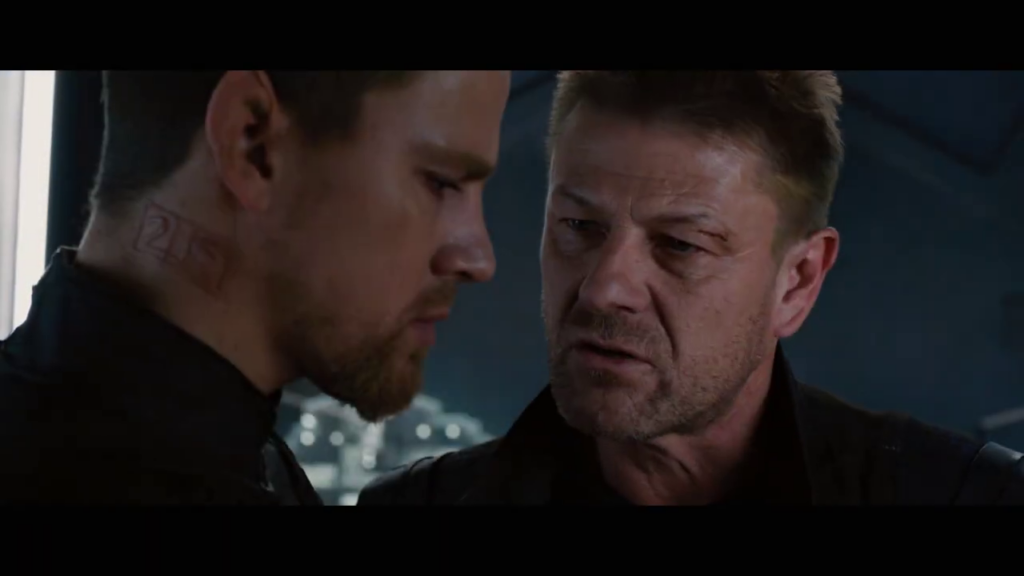
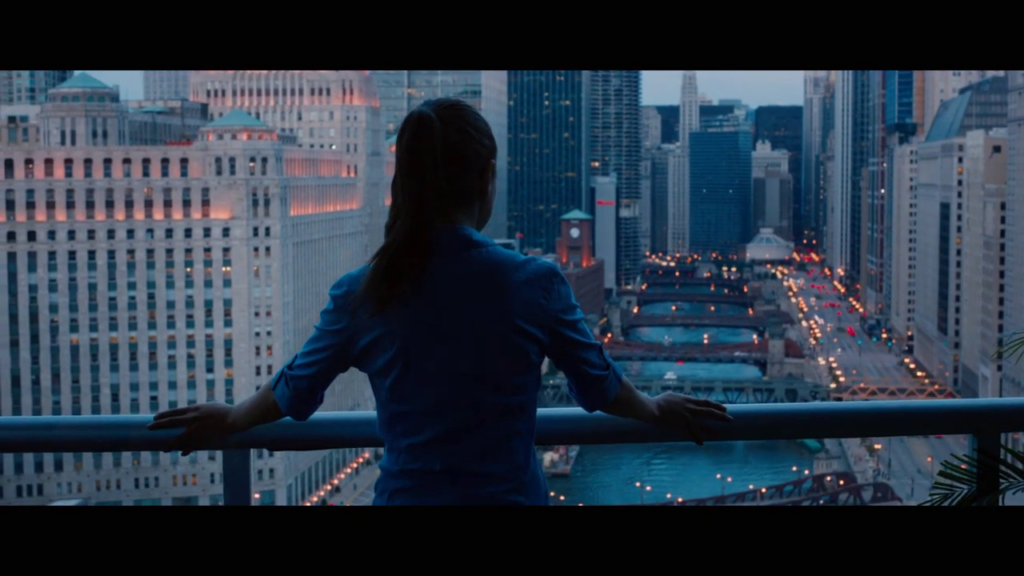
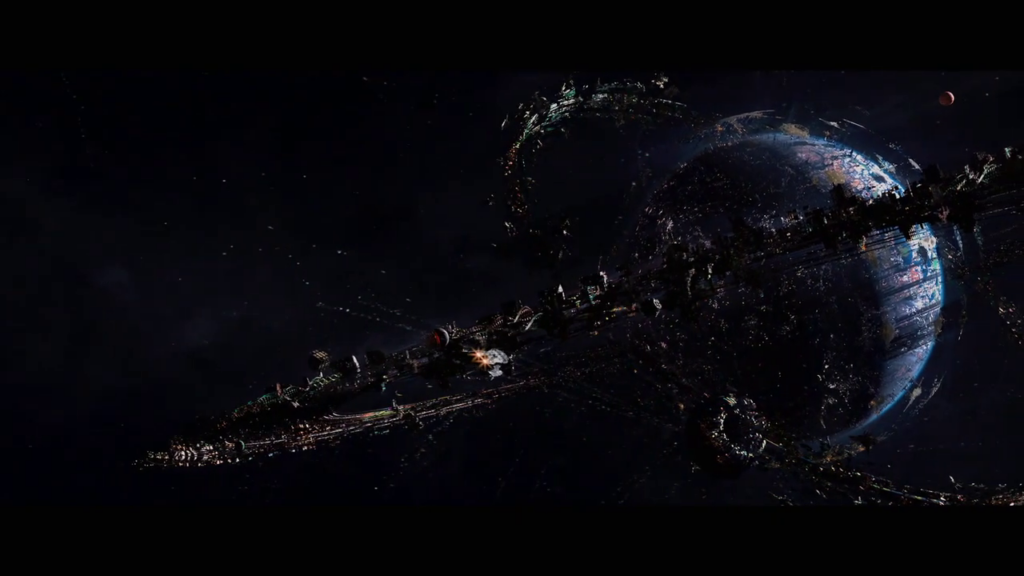
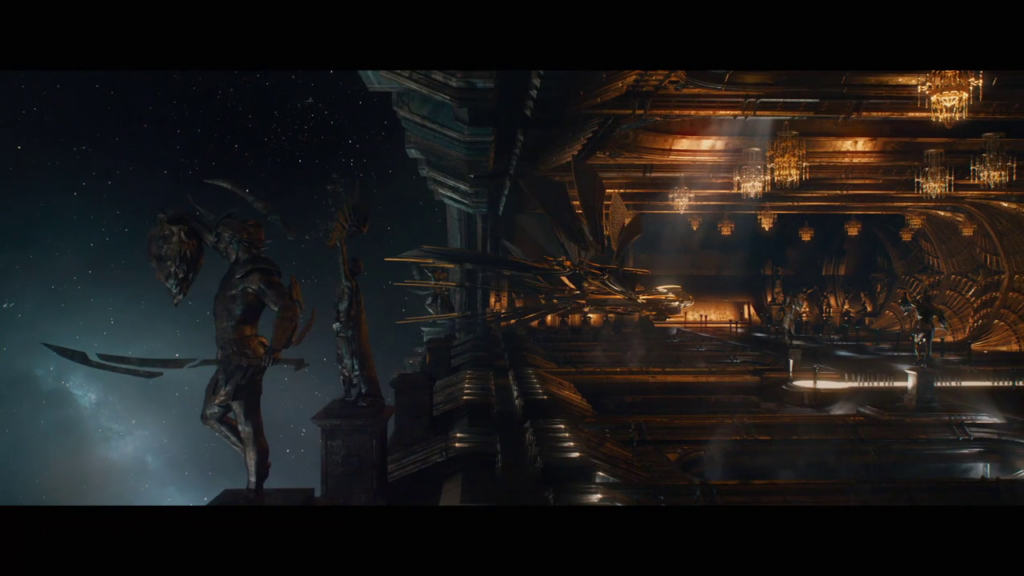
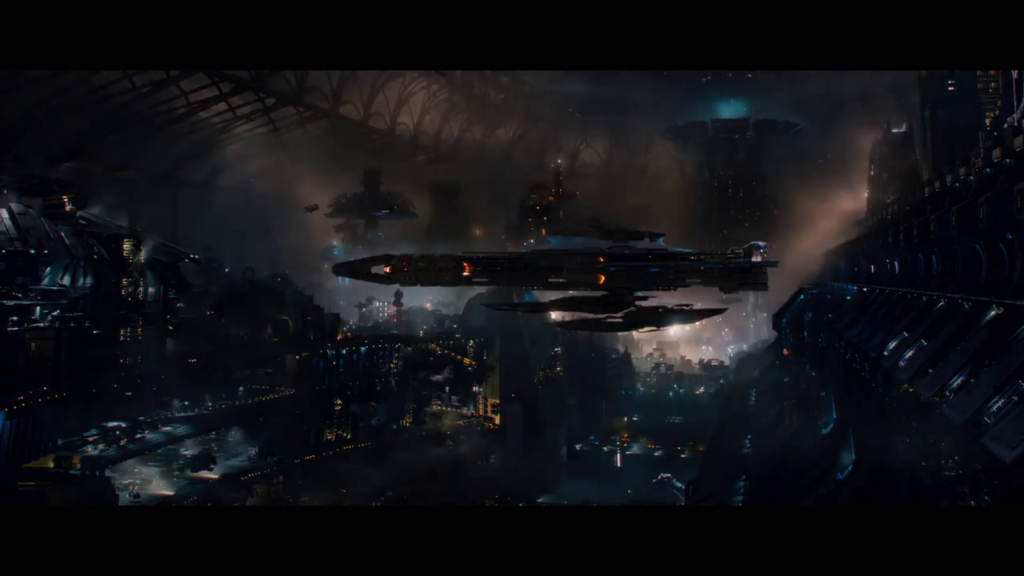
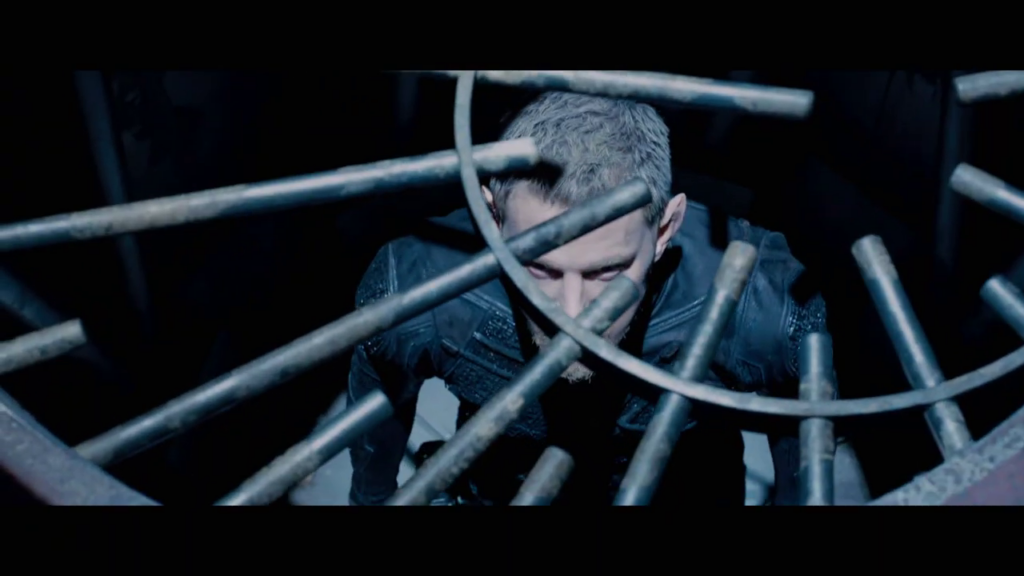
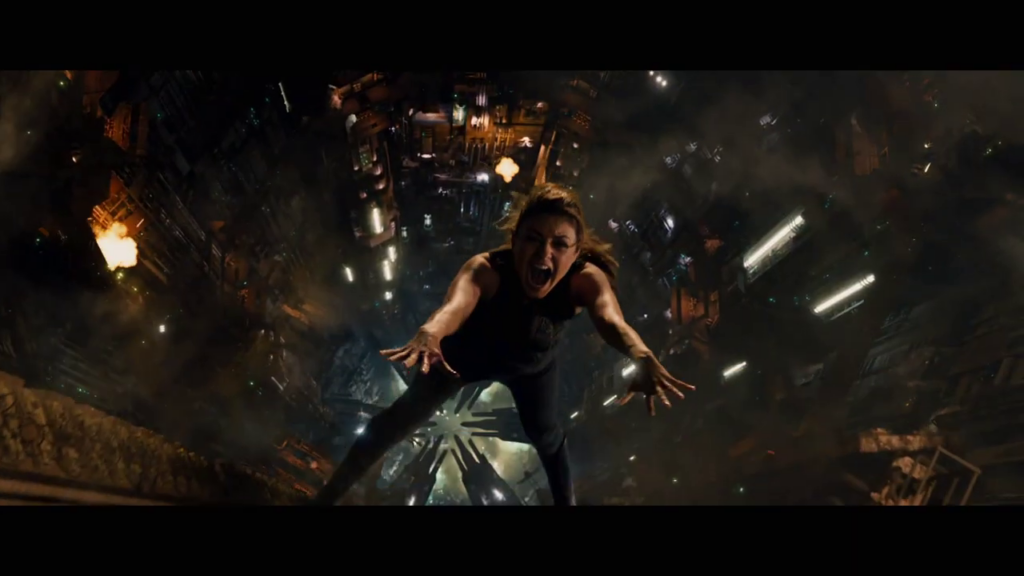
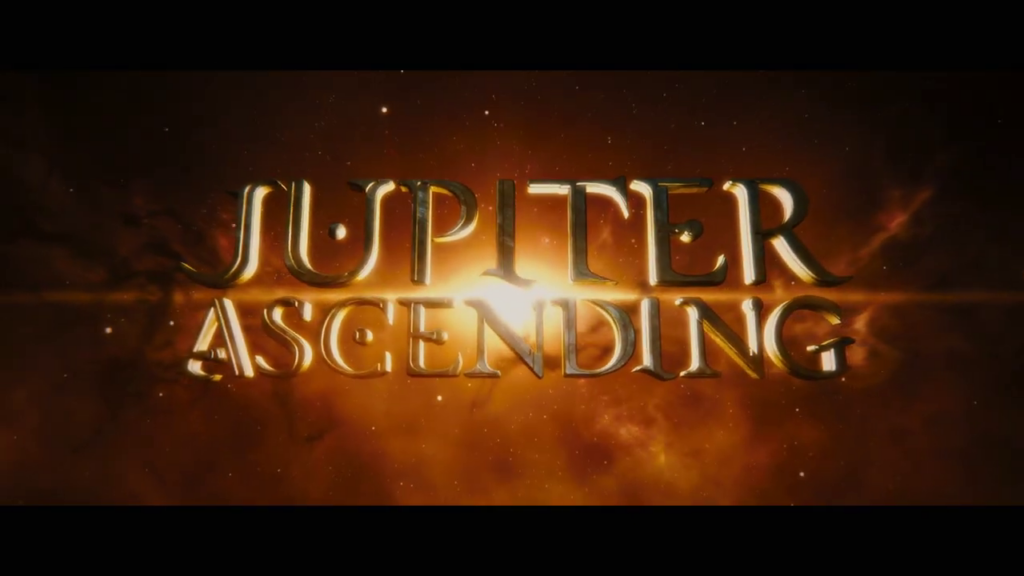
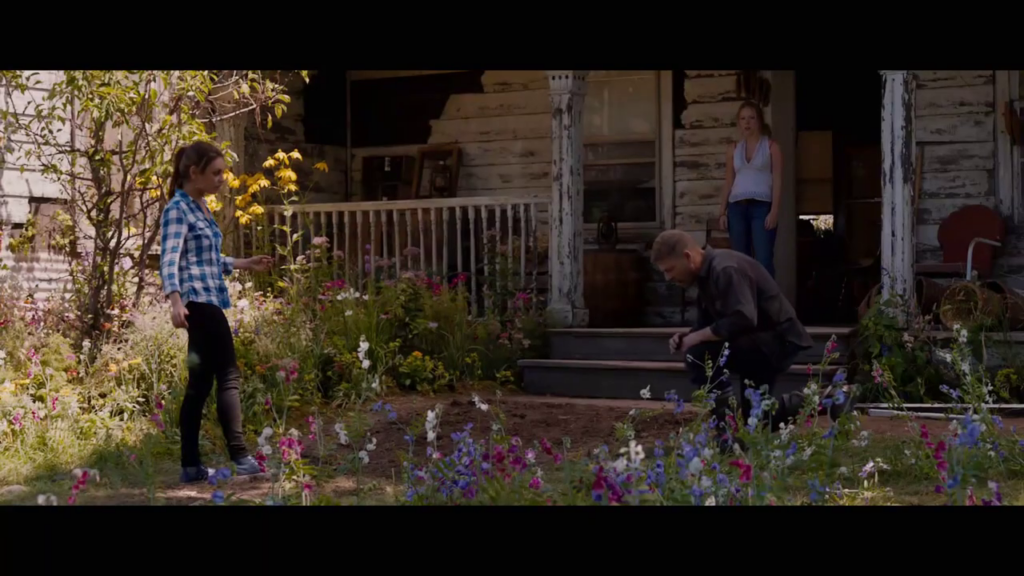
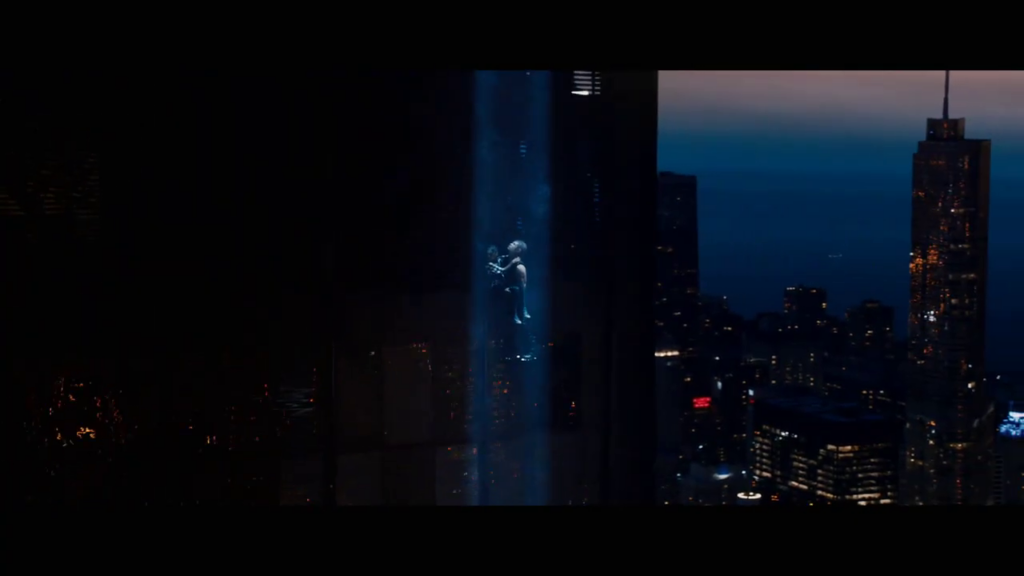
Jupiter Ascending (2015)
Film review #651
Director: Lana Wachowski, Lily Wachowski
SYNOPSIS: Jupiter leads an ordinary life when she is caught up in an interplanetary struggle when it turns out she is the genetic reincarnation of the head of the most powerful business in the galaxy, and inheritor to a vast fortune. Caught up in a battle for the inheritance of her supposed genetic double, Jupiter has to figure out who she can trust as she is kidnapped across the galaxy by those who want her inheritance for themselves.
THOUGHTS/ANALYSIS: Jupiter Ascending is a 2016 sci-film. An ordinary woman discovers that she is the genetic reincarnation of the head of the Galaxy’s most powerful empire, and is caught up in the struggle for control of it between three siblings. A simple enough story in theory, but let us set the tone here: it is bad, and borderline incomprehensible. Obviously the film is trying to capture the feeling of the main character being introduced to a galaxy which she has not known anything about, but there has to be some way for the viewer to be able to follow what’s happening too. What we get is just Jupiter being passed back and forth across different planets, spaceships and the like, with no real sense of place or establishing where in outer space we are at any given time. The film is constantly interrupted by characters having to explain things to Jupiter, meaning we have to suffer through it as well. The film obviously wants to create an expansive universe, but it really sweats the small details to the point that information overload sets in, and the explanation never applies to anything from that point on. The whole scene with the bees recognising Jupiter in the sense that bees “recognise royalty” was so unbelievably stupid I don’t know where to start: they could have just written any other way to show her status, but to do it with bees raises far too many questions: do bees not sting human monarchs as well then? It doesn’t matter, because it is never referenced again after it’s unceremonious one-time use. The film has some expansive and detailed CG effects, and the action scenes have a certain pacing, but always resolve themselves the same way: with Cain saving Jupiter at the very last second. By the fifth or sixth time it happens it’s so predictable the whole fanfare around it is just wasted. Also, Cain has these anti-gravity boots that he constantly uses in his action scenes to fly about, but apparently no one else in the galaxy has access to these things as they are left running about on the ground after him? The Wachowskis bring in their conceptual exploration of transhumanism and discovering who you are as they typically do, but there’s no depth to it or interesting exploration; it’s just more explaining minutiae that drags the film down into getting stuck on little details that don’t matter.
The film is supposed to have this overarching love story between Jupiter (Mila Kunis) and Cain (Channing Tatum), and how Jupiter has never been in love because her Mother taught her never to get close to anyone or something. There’s the germ of a narrative here, but it’s hampered by another of the film’s huge problems: the characters never becomes proper characters. Everybody in the film just feels like they can’t settle into their roles, and as such you only recognise the actors just being themselves. These are all fairly competent actors, so they know what they’re doing, they just aren’t given anything tangible or unique to work with. As such, any chemistry or character development is severely limited. By far the most obscene performance is Eddie Redmayne as the villain Balem Abrasax: he constantly talks in this low whisper which makes him impossible to take seriously. His role is so over-acted that it’s distracting from anything his character does. In fact, his character disappears for nearly all the film, so he’s not really all that important. The rest of the cast are Sean Bean being Sean Bean (although his character doesn’t actually die) and others that barely make a scratch in the film. The crew of the spaceship Aegis have a supporting role, I’m just not sure what it is, due to the constant moving around different planets and locations across space mentioned, it’s hard to keep track of just what is going on and what their motivations are.
The film does have some good CG effects and the otherworldly locations are rendered with good detail and a graspable scale. Unfortunately, that is the only positive I can really take from this mess of a film. Jupiter Ascending is a mess of poorly structured plot, ill-defined characters, and bemusing performances that nowhere near fulfil the concepts and narrative themes they are attempting to develop. Every action scene playing out essentially the same even drains the film of any entertainment value. I simply cannot recommend this film in any way.
-
#650 – Cyborg X (2016)
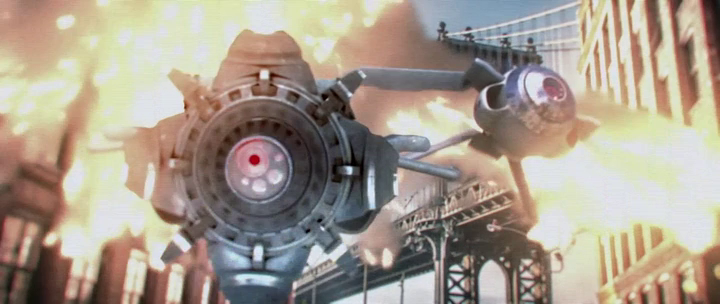
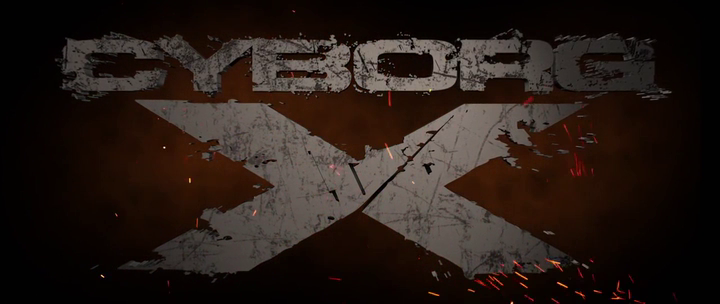
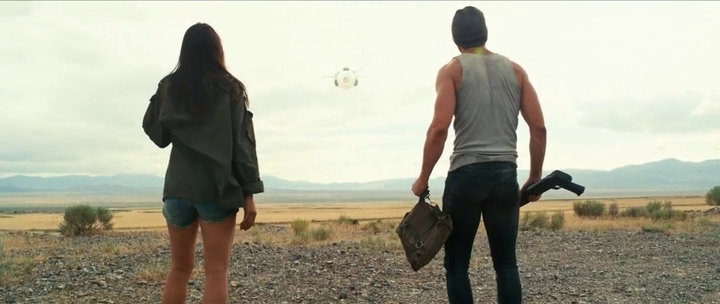

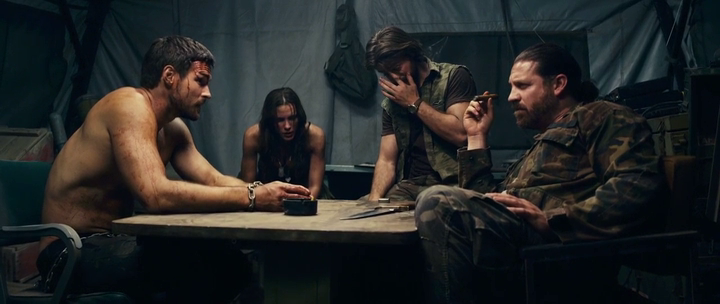

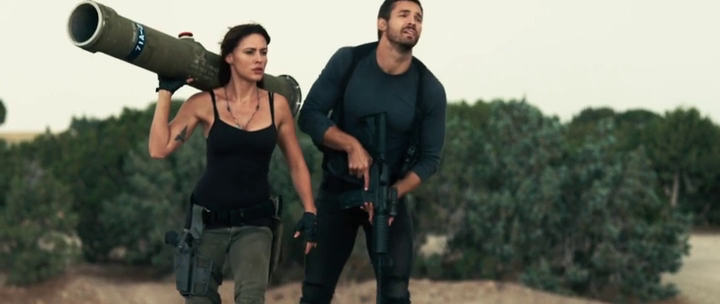
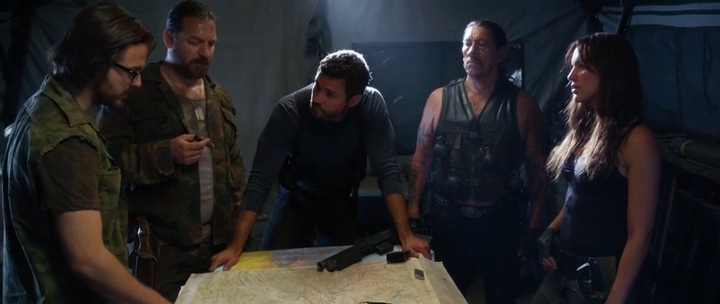
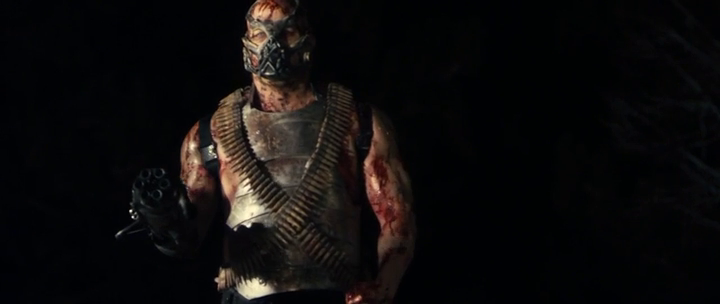
Cyborg X (2016)
Film review #650
Director: Kevin King
SYNOPSIS: When a computer virus infects the weapons manufacturer X-Corp, it’s drone weapons hunt down humans and reduce the world to ruin. Hiding out in the desert, a group of survivors happen to learn that X-Corp CEO Jack Kilmore has been kidnapped by the cyborgs that now roam the planet nearby. They plan a rescue mission to retrieve him and use the knowledge he undoubtedly has to turn the tide of the war against the cyborgs…
THOUGHTS/ANALYSIS: Cyborg X is a 2016 film and the fourth film in the Cyborg series of films. That said, the film has no ties with any of the previous films other than the name, and the year it is set would, in theory, make it a prequel. However, nothing in the film itself shows up in the others. The weapons manufacturer X-Corp has developed a new form of warfare in the form of cyborg drones that can implant and control humans, but when a computer virus infects the system, the weapons attack humans indiscriminately, reducing the world to a very familiar post-apocalyptic wasteland. In the aftermath, we find ourselves in a desert in the middle of nowhere: the favourite setting of post-apocalyptic films that have no budget to build sets. A group of survivors are banded together here and discover that the X-Corp CEO Jack Kilmore has been kidnapped by cyborgs nearby and mount a mission to rescue him, figuring he has knowledge that can be used to win the war. A very typical story (a bit too “inpspired” by Terminator at some points) accompanied by a typical cast of mediocre characters leave this film dull and predictable, although you shouldn’t be expecting much considering the obvious lack of budget and wooden acting.
The film has a fair amount of violence and gore, but the effects aren’t particularly great. There’s one scene where a guy wakes up to find the entire lower body is missing, and he just starts crawling with his insides hanging out and shooting cyborgs without any regard for logic and the fact he should be long dead. The CG effects are even worse, and aren’t going to convince anyone. All of the cyborgs have the same look to them as well, which is strikingly similar to Bane in The Dark Knight Rises. It’s a bit odd how the cyborgs are supposed to be humans who have had this drone thing attached to their face and transformed, but they all manage to look exactly the same for some reason, probably just because they could only afford to outfit one guy with the gear. Nothing in this film feels authentic, entertaining or exciting, it’s just another low budget post-apocalypse mess that fails to do anything noteworthy.
-
#649 – Cyborg 3: The Recycler (1994)
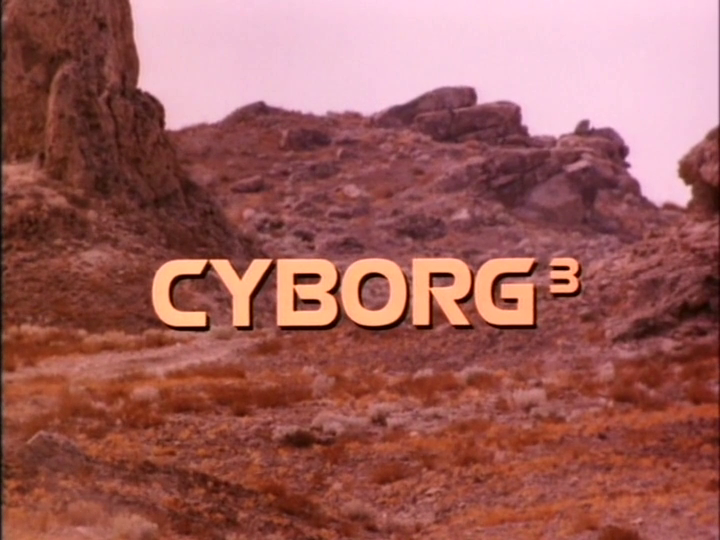
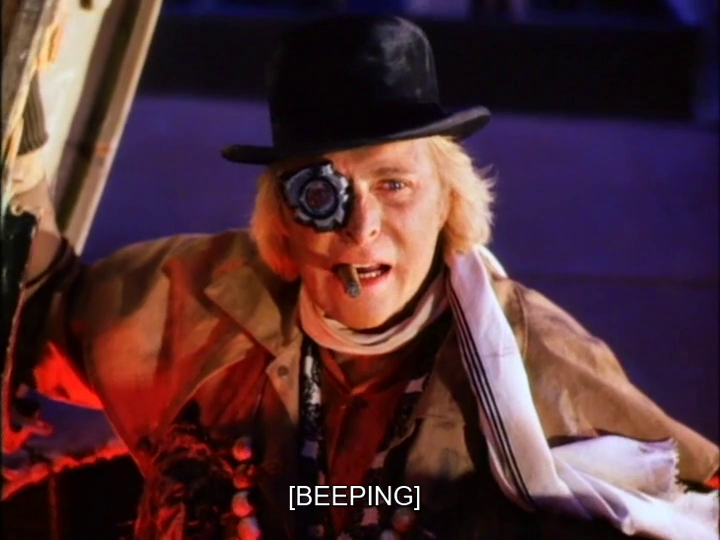
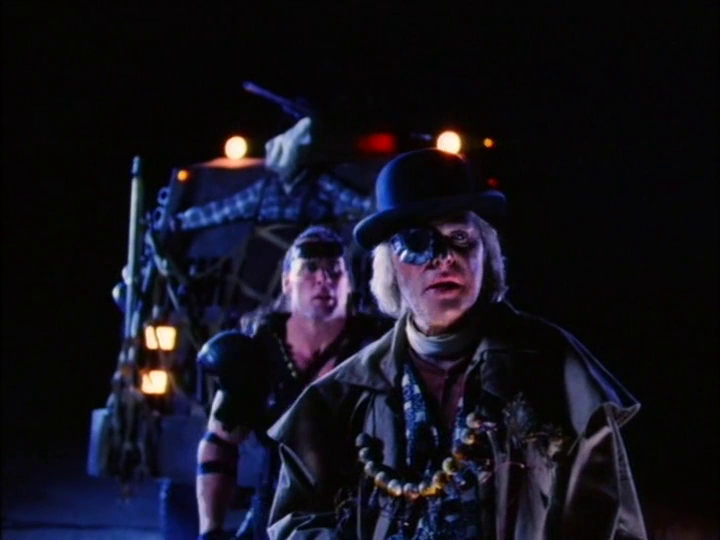
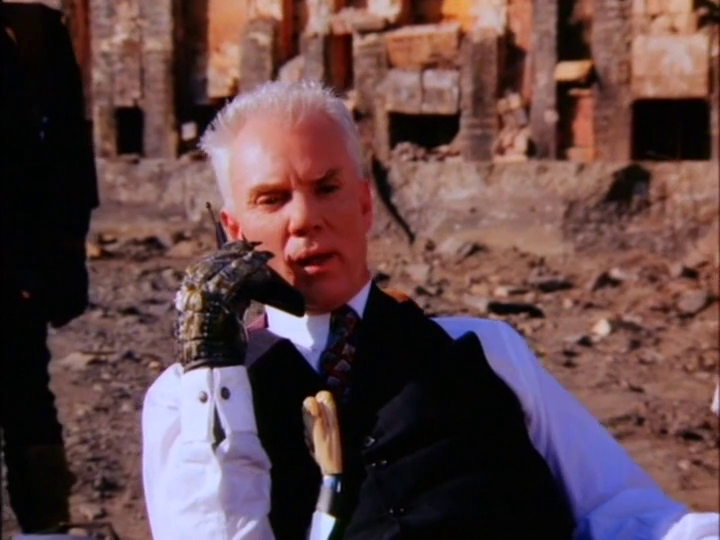
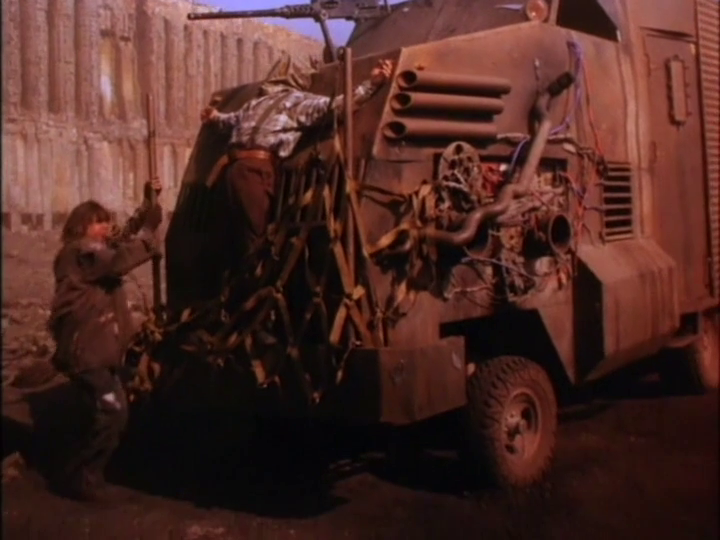
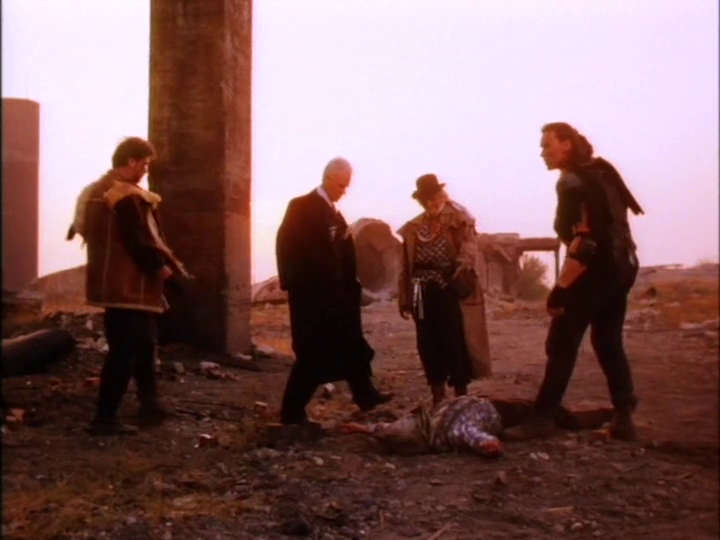
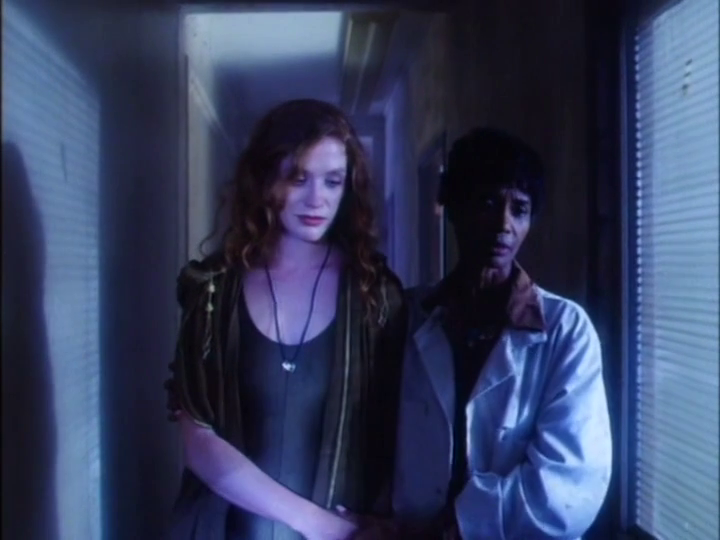
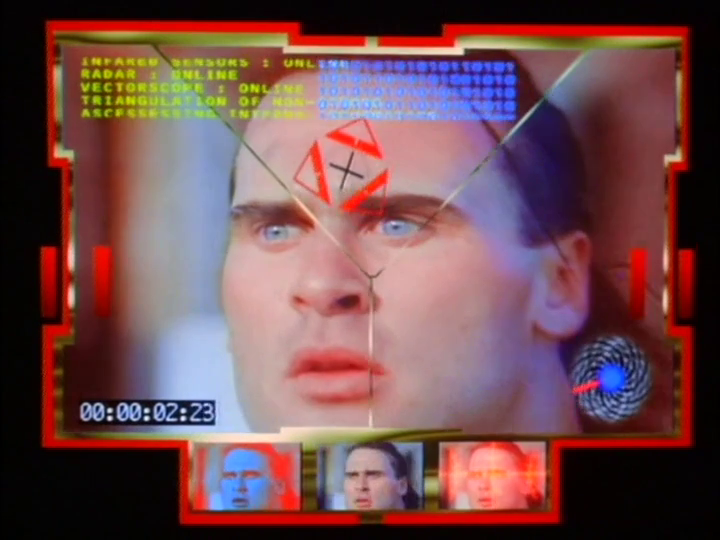
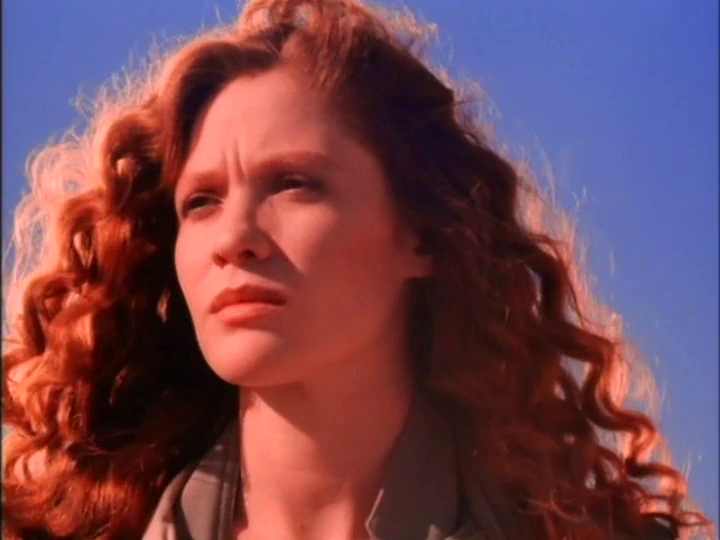
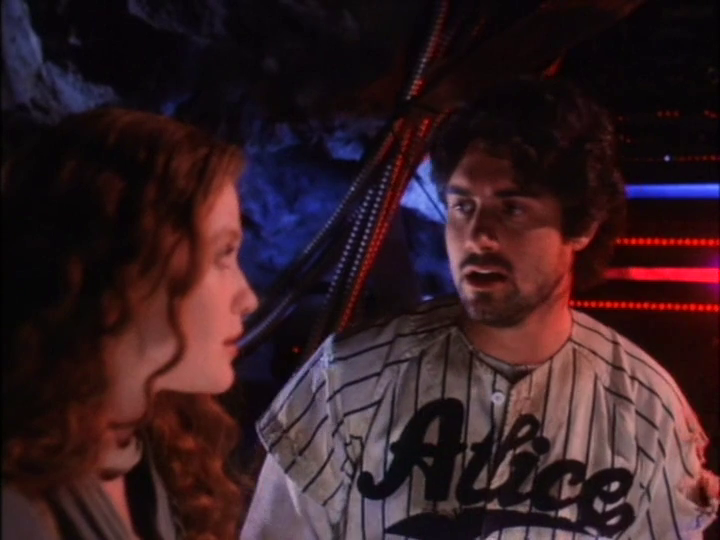
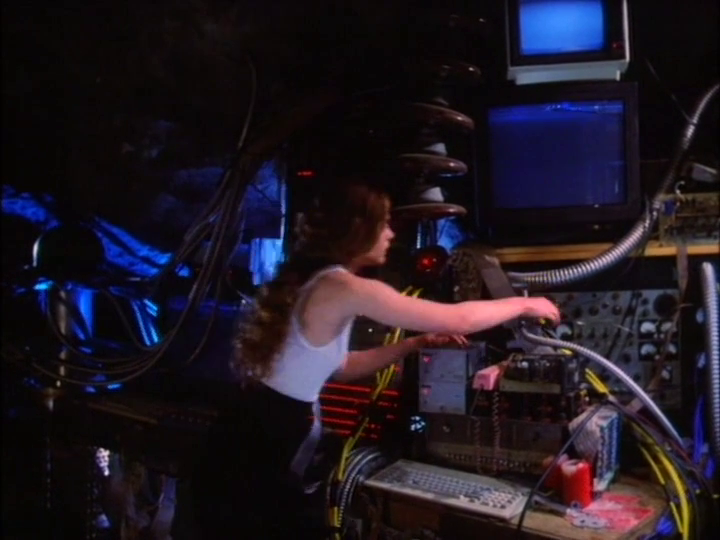

Cyborg 3: The Recycler (1994)
Film review #649
Director: Michael Schroeder
SYNOPSIS: In the future, cyborgs are hunted by “Recyclers” who dismantle and sell them for parts. Cash, one such android, visits a doctor to find that, for some reason, she is pregnant. This draws the attention of a Recycler who chases her down, leading her to the hidden Cytown where cyborgs take refuge from the hunters. But with them fast approaching, they must prepare to fight and defend themselves…
THOUGHTS/ANALYSIS: Cyborg 3: The Recycler is a 1994 sci-fi film, and the third in the (loosely affiliated) Cyborg series. Set sometime after the events of Cyborg 2, we see the return of the cyborg Cash, who is played by Khrystyne Haje rather than Angelina Jolie this time, as she visits a cyborg doctor after experiencing her energy being drained to discover that somehow she is pregnant, and a new cyborg is growing inside of her. This whole plot element is really tenuous, and explanations about how it has actually happened barely cover the logic of it all. Nevertheless, she is the first cyborg to become ‘pregnant’ and when Recycler Anton Llewellyn learns about her, he begins to hunt her down for her parts. Cash flees, with the help of one of the Cyborg’s creators, to Cytown, where Cyborgs live secretly and free from being hunted. This leads to a recycled story of the town’s inhabitants having to defend themselves from the marauders in the form of the other Recyclers that Llewellyn has banded together. Yes: it’s essentially the plot of Mad Max 2, recycled for your viewing pleasure, nearly fifteen years after the fact, and with none of the characters, action or the effects that make it work. The film focuses on the villain Llewellyn almost as much as Cash, giving about equal screentime to each. The trouble is there’s not really much to Llewellyn’s character, and nothing to develop, or a backstory to explore. The implication of Cyborg’s being able to give birth is said to “change everything,” but they never really explore this in any detail. The film also ends without the baby even being born, which feels like the film had no real idea how to resolve it.
Aside from all the issues with the plot, you get your typical post-apocalyptic schlock, with goofy looking vehicles and gangs of motorbikes, which always manage to survive nuclear war it seems. There’s some okay practical effects scattered about, but nothing too memorable. Overall, Cyborg 3 is slow paced, lacking in substance, and fails to distinguish itself amidst the plethora of similar films in the genre. The fact that this series of films has made it to the third one is baffling.
-
#647 – Cyborg (1989)
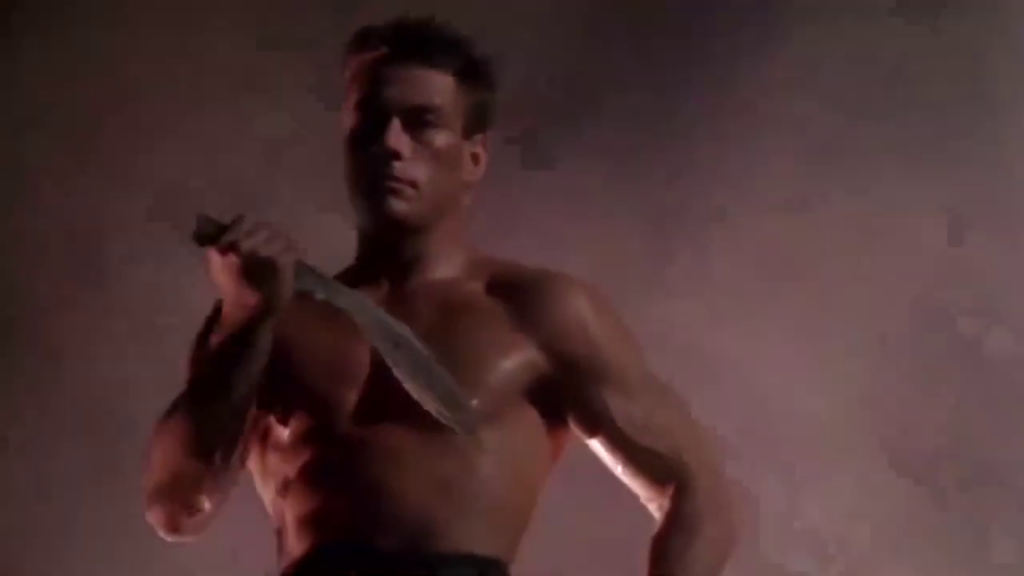
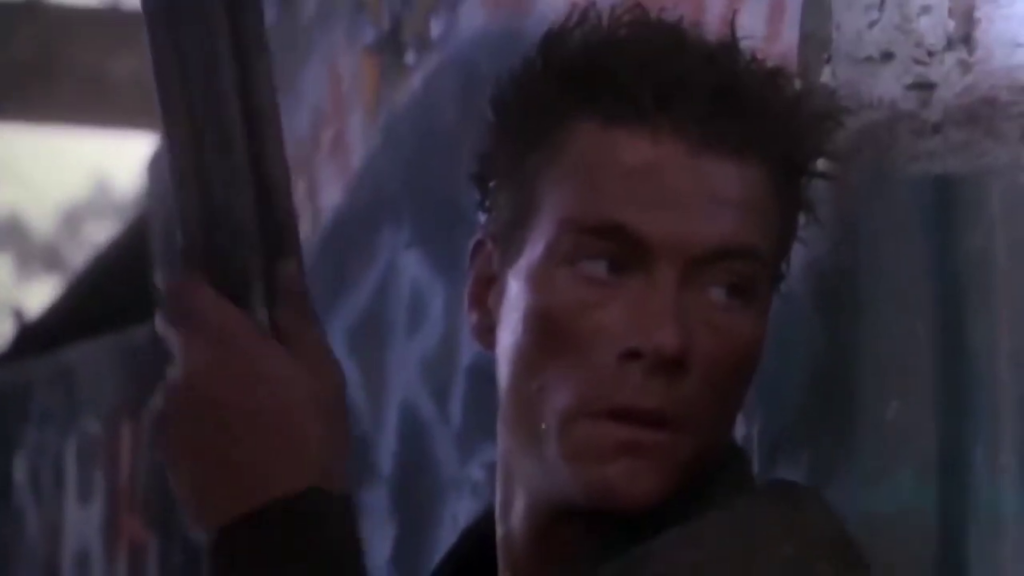
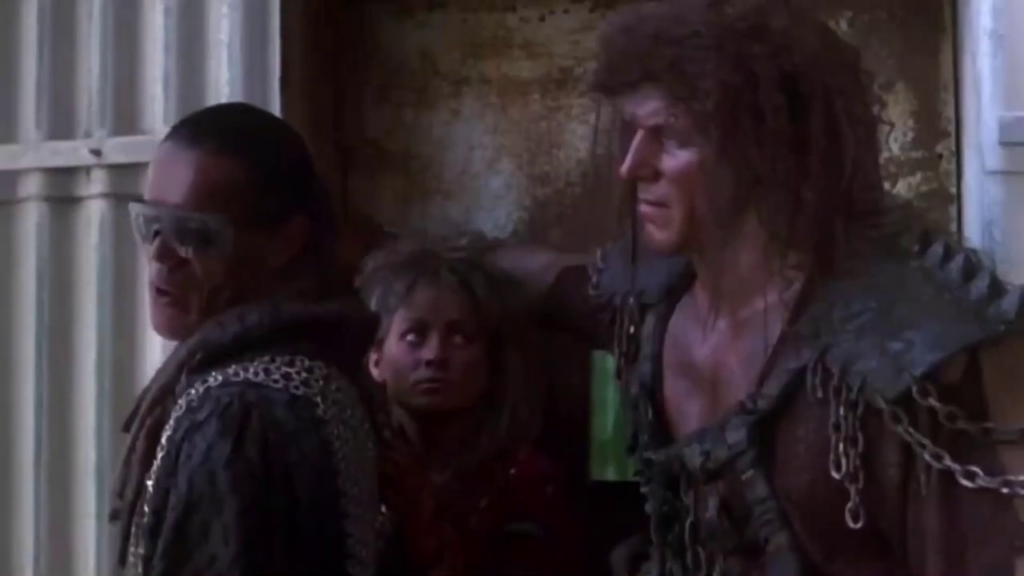
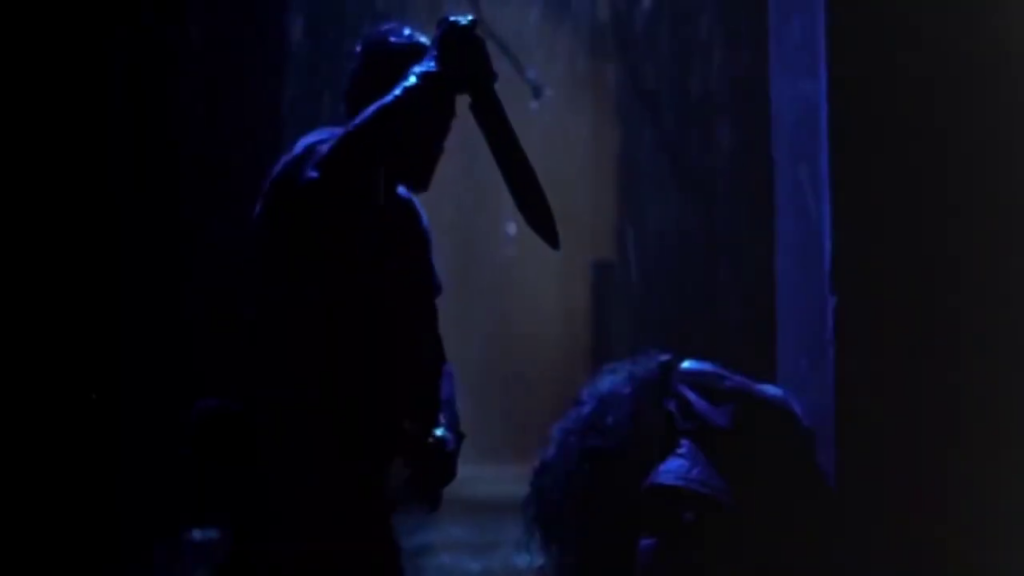
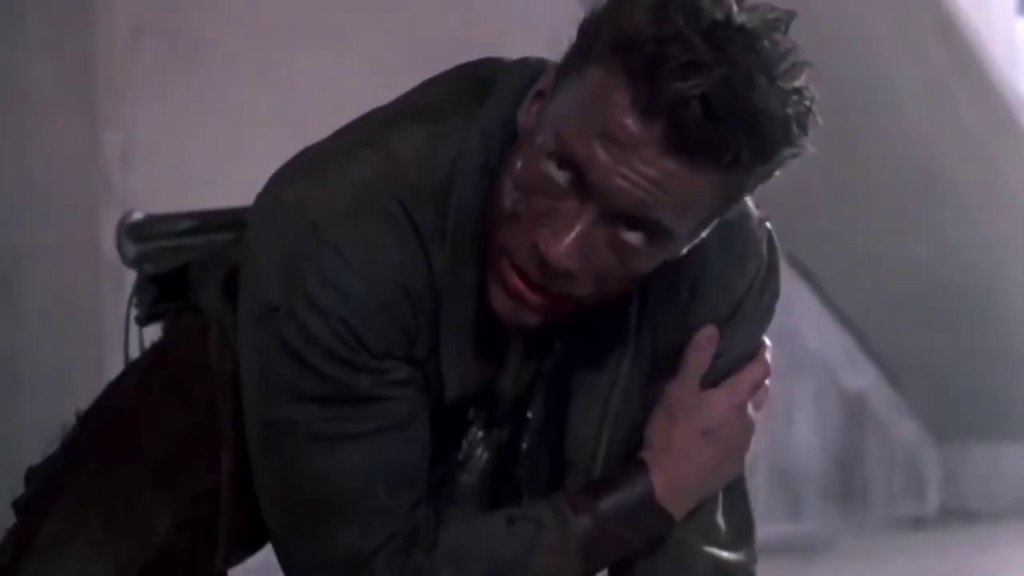
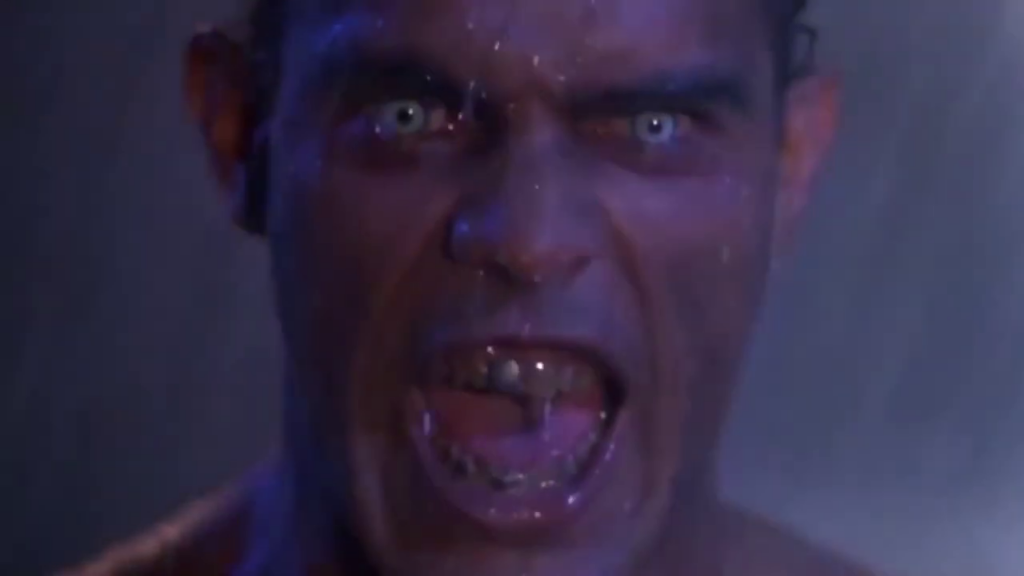
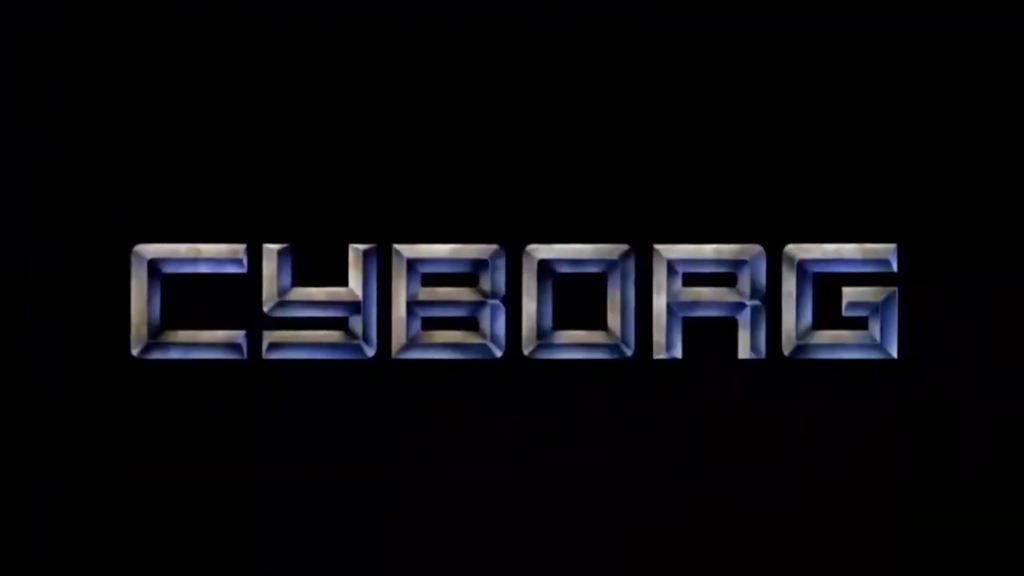
Cyborg (1989)
Film review #647
Director: Albert Pyun
SYNOPSIS: In the near future, the world has become a post-apocalypse wasteland, and a ruthless gang is terrorising what is left of the United States. A female cyborg is sent to retrieve data from New York City and return it to Detroit in order to finish the development of a cure for a plague that is killing the survivors. She runs into a man who is fighting the leader of the gang, and asks him to escort her to Detroit…
THOUGHTS/ANALYSIS: Cyborg is a 1989 sci-film. Set in the typical post-apocalyptic wasteland of Mad Max ripoffs (and post-nuclear America too, I suppose), a plague is ravaging the survivors, and scientists in Detroit send a cyborg to New York City to get data that can help them complete a cure. While there, a gang tries to capture her so they can control the cure, and she seeks the help of Gibson Rickenbacker to escort her back to Detroit. The whole setup is very typical of this type of film, with the lone lead character who has abandoned his humanity rediscovering it as he is forced to accompany other people on a dangerous quest across the wasteland. There’s nothing that really sets the film apart from the oh so many similar films of the time. There’s some decent action that mostly revolves around Van Damme’s kickboxing expertise, but it’s all fairly par for the course.
In a film where one of the main characters is a cyborg, Van Damme still manages to come off as the last human character: his line delivery is barely audible, and clearly struggling with speaking English at some points. The villain is just your typical unhinged psychopath that doesn’t offer anything interesting, and everyone else is equally as dull. There’s some decent practical effects with the whole cyborg, but nothing too remarkable. The film really fails to embrace its best aspects: the fight scenes, and too much stunted dialogue upsets any sense of pacing. Probably not the worst of these types of movies, but Cyborg fails to really offer anything interesting, and doesn’t capitalise on the few things it does competently.
-
#646 – Dark Tower (2017)
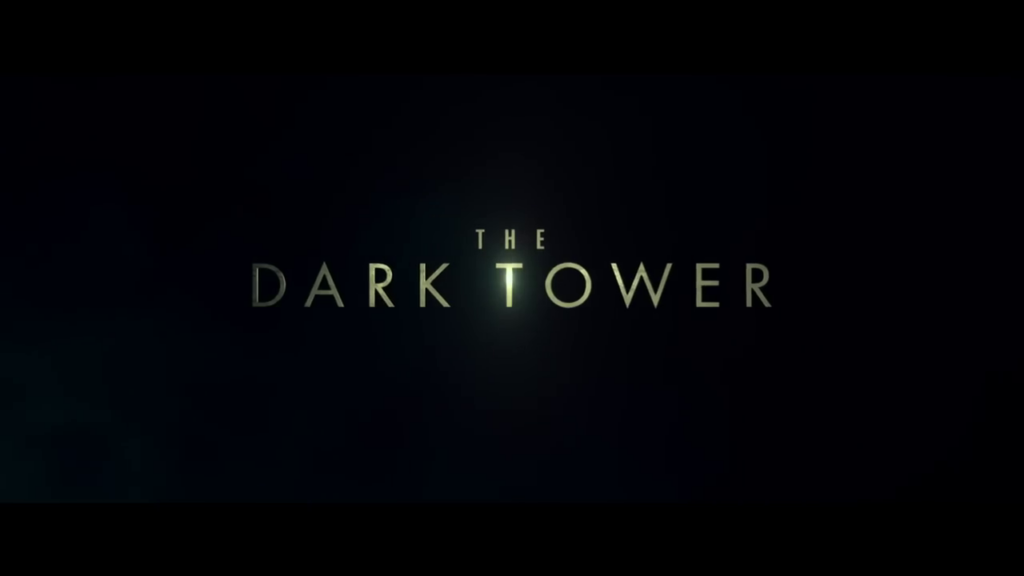
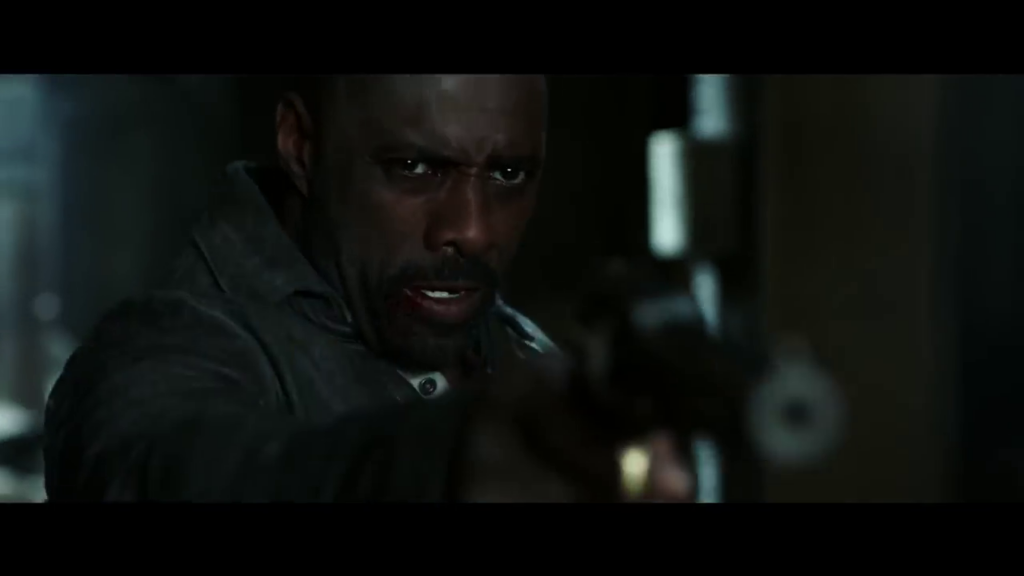
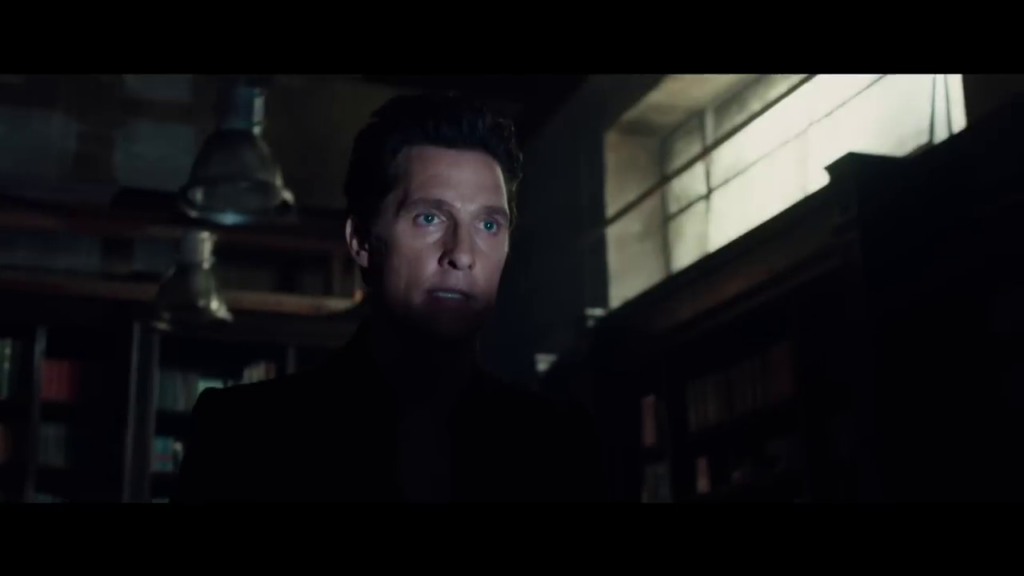
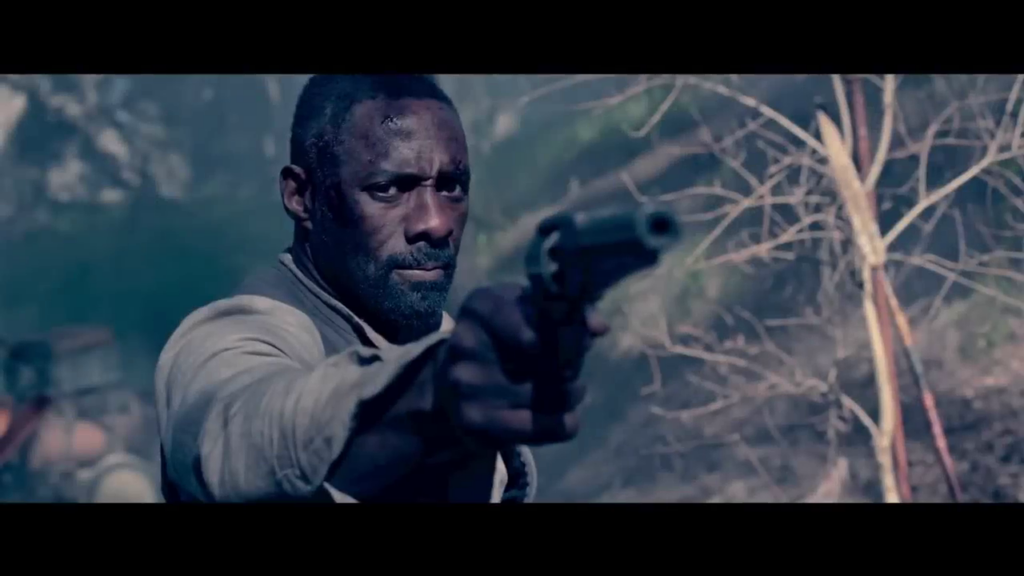
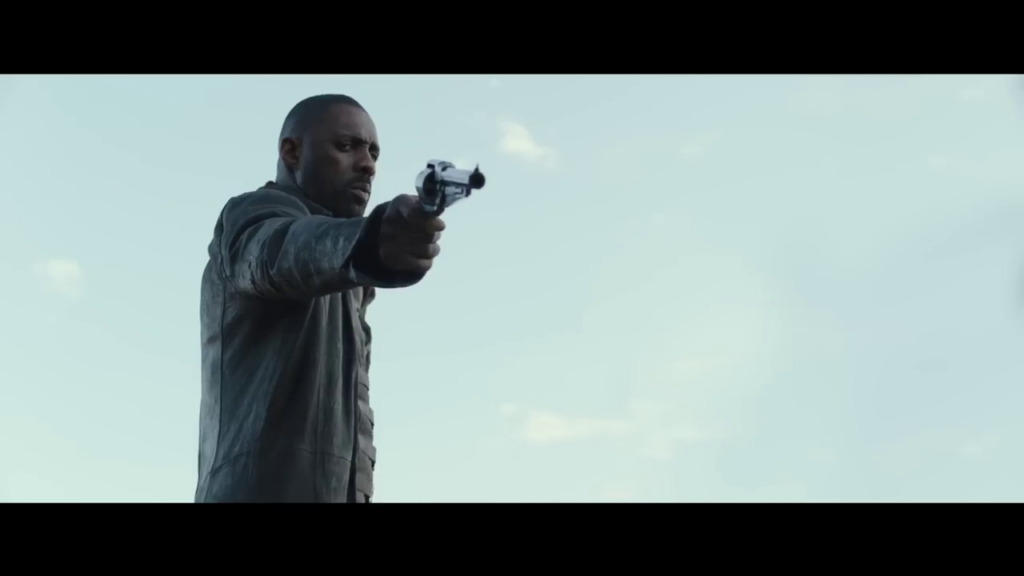
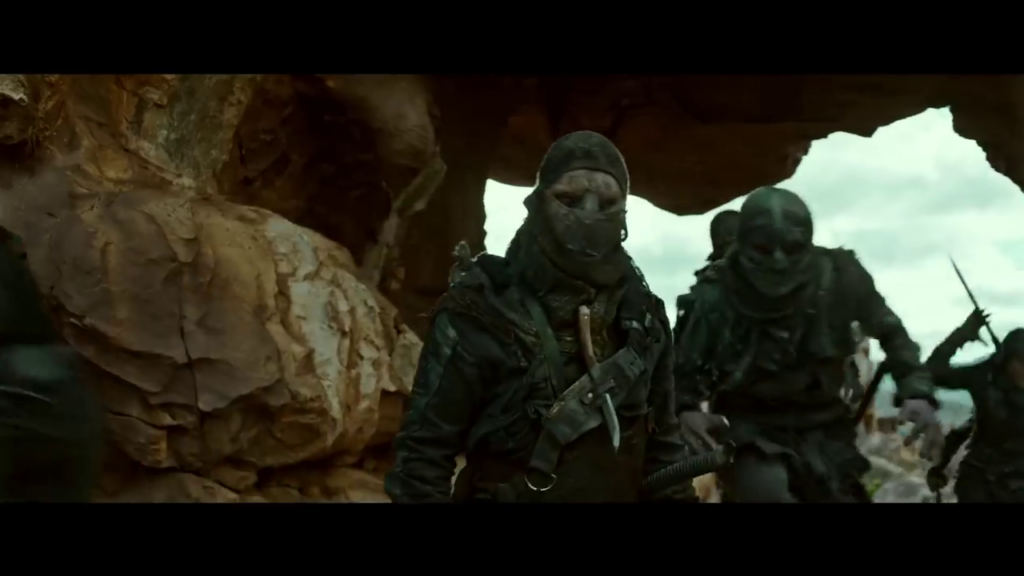
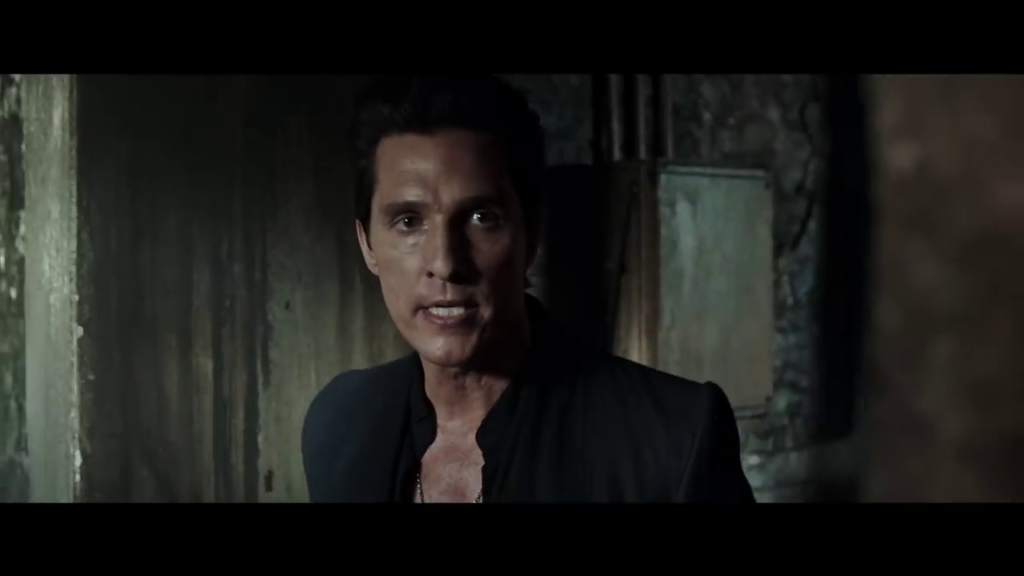
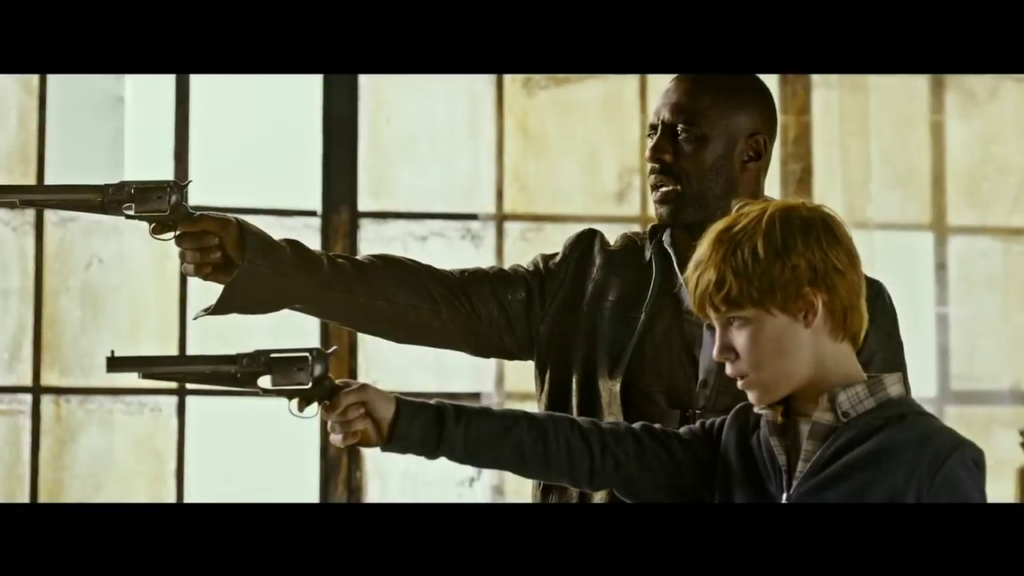
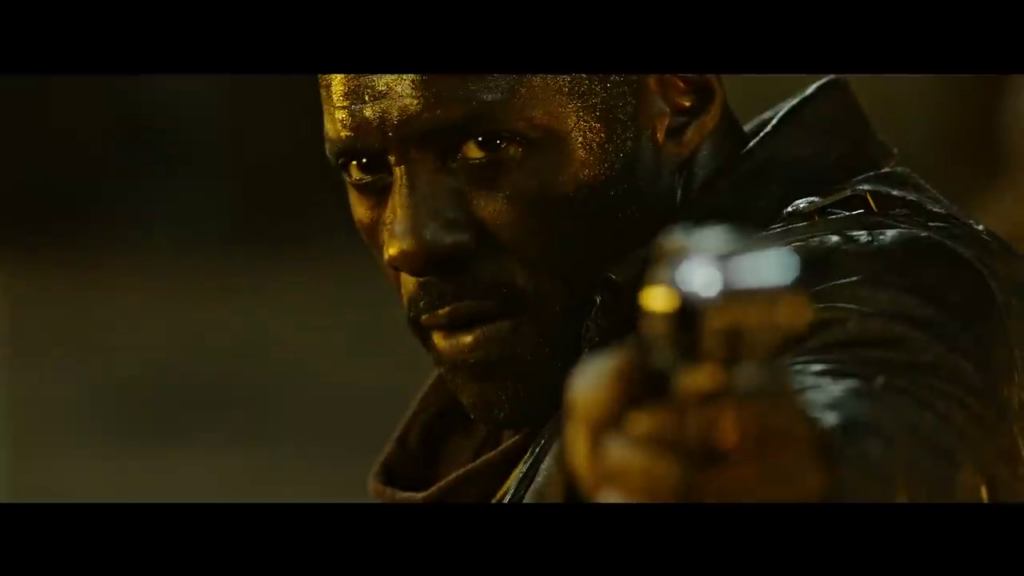
Dark Tower (2017)
Film review #646
Director: Nikolaj Arcel
SYNOPSIS: Jake Chambers is having dreams about another world in which a Gunslinger tries to stop the Man in Black form destroying a tower and thus the world. When some workers from a psychiatric ward come to take him, he recognises them wearing human skins like in his dreams, and manages to flee through a portal to the world in his dreams. There, he meets the Gunslinger, and the two of them attempt to bring down the man in Black before he can finish off both of their worlds…
THOUGHTS/ANALYSIS: Dark Tower is a 2017 film and an adaptation of Steven King’s series of novels of the same name. The story revolves around Jake Chambers, an ordinary schoolboy who has strange dreams about a ruined world and a gun-wielding man facing off against a Man in Black. When he discovers that the world is all too real, he teams up with the Gunslinger to save both his world and theirs. Emerging from a troubled production which saw the rights for the film passed between a number of studios and directors, the film takes the eight book series and condenses it into a just over ninety minute film. It should be evident that this comes fraught with problems. I have never read the books, but I am aware that the whole series is full of lore and worldbuilding, and the main issue with this film is that it has very little, and clumsily establishes what it has to before it rushes off onto the next plot point. I’m sure that there is an interesting world and mechanics in this story, but there’s no time taken to build or present it. The film throws the story into a typical three-act structure that again just skims over any worldbuilding and relies on the typical movie structure to carry the story through. First, we get Jake thrown into the Gunslinger’s world, then we get the Gunslinger thrown into Jake’s world with a typical fish-out-of-water experience in a very typical New York City setting, and then we get the finale. There’s no room for anything special or unique. Even if you want to make the argument that it isn’t trying to faithfully adapt the novels and just do its own thing with the material, it doesn’t do that either: it just slots it into this very formulaic structure.
The only thing real highlights of the film are Idris Elba’s performance as the Gunslinger, and some of the action scenes are quite nice. The rest of the characters don’t really offer anything interesting. Matthew McConaughey as the Man in Black with his ability to do just about anything is very flavourless. I a sense, I understand how this film became such a mess with it’s constant handing off to different people, meaning that any vision of it has been rewritten and dissected so nothing coherent remains. Even so, condensing such an obviously lore-heavy series into a film that barely stretches ninety minutes is evidently going to be fraught with problems without serious reworking: the solution the film finds to this is to shove it into a very typical structure that barely keeps it afloat in place of any worldbuilding. And it is the serious lack of worldbuilding that hampers this film: there’s no sense of place, setting, or consequence that makes anything matter. Dark Tower has some good moments, but barely coherent storytelling and worldbuilding leaves it a mess of a film.

